














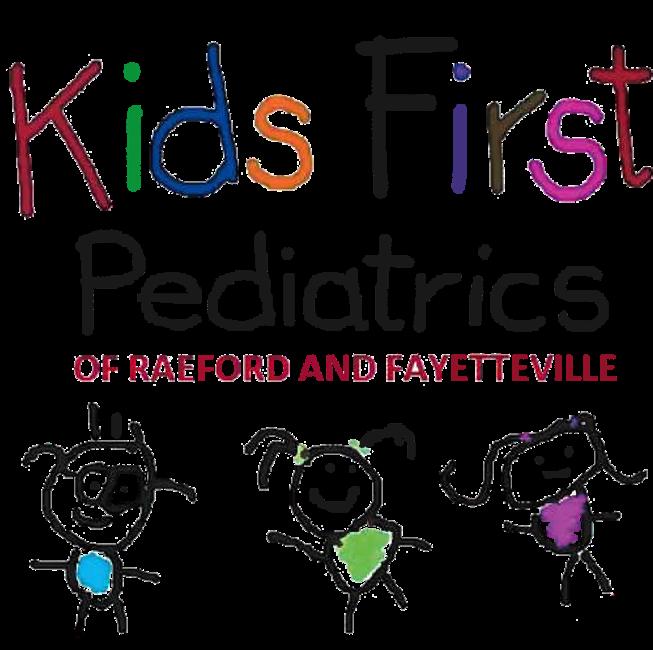

Kids First Pediatrics of Raeford and Fayetteville has created a professional and caring medical environment for infants, children, adolescents and their families. We provide complete pediatric and adolescent care.
Pediatric Services We Provide Check Ups, Sick Child Visits & More in Raeford and Fayetteville
• Well Child Visits
• Sick Child Visits
• Vaccine & Immunization Schedule
• 2023-2024 Guide to the Flu
• School, Sports, & Camp Physicals
• Autism Spectrum Disorder
• Vaccines & Immunizations
• ADHD Testing & Treatment
• Asthma Symptoms & Treatment
• Breastfeeding Support
• Urinalysis
• Strep and Mono Screen
• Vision and Hearing Tests
Jose Buenaseda, MD, FAAP
Leamor Buenaseda, MD, FAAP
Sreelekha Sashidhar, MD, FAAP
Christine Arnold, CPNP-PC
Melanie Pitts, DNP, NP-C
Beverly de La Rosa, CPNP-PC
Danielle Trigg, CPNP-PC
Rachelle Olson, FNPC
Ashley Monroe, PA-C
Sarah Lewis, PA-C
2694 NC 24-87 Cameron, NC 28326 Mon. to Fri., 8 a.m. to 5 p.m. 910.500.KIDS (5437)
Brookstone office only 8 a.m. – 12 p.m. Saturdays for sick/urgent appointments, established patients only.
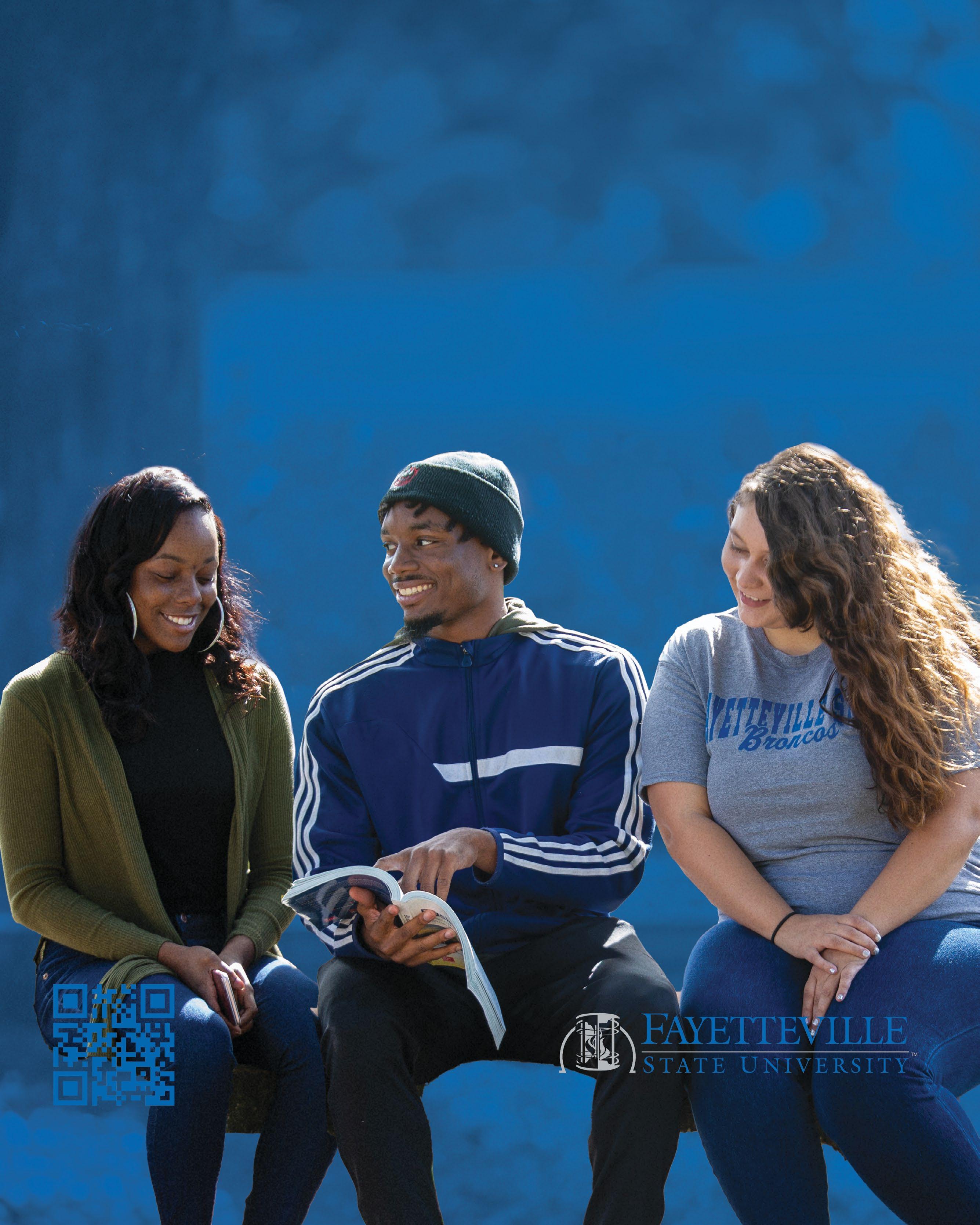


Publisher Kyle Villemain
Magazine Editor Valeria Cloës
Editorial Assistant Maydha Devarajan
Contributing Editor Katie Kosma
Intern Trey Nemec
Director of Operation & Sales Talmadge Rogers
Administration & Operations Coordinator Caitlin Malson
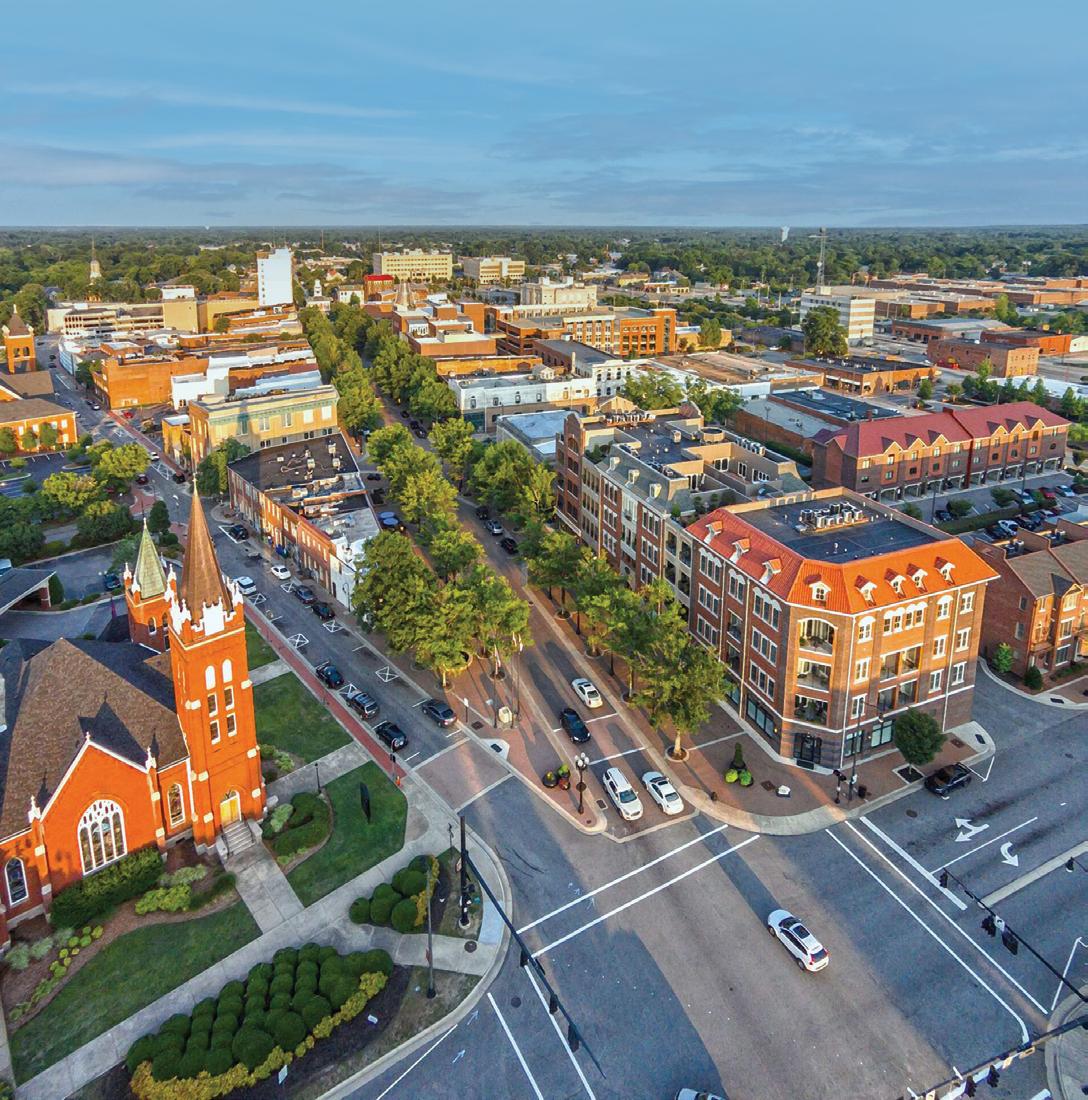
Social Media Manager Raven Scott
Graphic Designers
Nicole Pajor Moore Annette Winter
Sales Team Leader
Dawn Denham
Sales Executive Arianna Bannerman
Photographers
Andrew Craft
Sharilyn Wells
Roger Winstead
Paul Woolverton
Tony Wooten
Contributing
Writers
Morgan Casey
Bill Kirby Jr. Jaylin Kremer
Jami McLaughlin
Claire Mullen
Diane Parfitt
Teri Saylor
Paul Woolverton
Mary Zahran
Distribution
Jennifer Baker Wayne Robinson



A section of "eres como una piñata, lleno de maricadas" by Daniel Ramirez-Lamos at the Arts Council of Fayetteville/ Cumberland County’s “Redefining Indigenous” exhibition in November 2024. Photo by Sharilyn Wells

One generation at a time, African American genealogists dig deep to uncover the stories of long-lost ancestors.
CityView Media will begin distributing ENGAGE Magazine, the Greater Fayetteville Chamber’s official business publication.
After a life of love and purpose, Evelyn Fay Ingle Spicer died peacefully at age 98 on Nov. 18 in her home.
For women, being tired, having back pain or feeling nauseated can be signs of a heart attack.
The Army is looking for a private contractor to create and run a new campus-style dining facility.
30 Unconventional chancellor keeps his cool
Darrell T. Allison was both a non-academic and former school-choice lobbyist when he became chancellor of Fayetteville State University. Has he shown detractors he was the right person for the job?
38 Court honors Fayetteville trailblazer
Portrait unveiled of Patricia Timmons-Goodson, the first Black woman to serve on the N.C. Supreme Court.
BY VALERIA CLOËS
The month of love is here. And Cupid himself aimed his arrow right at CityView ’s heart.
But instead of just thinking about feelings for a romantic partner, Cupid has inspired us to reimagine how we think about love.
Love is found through discovering your family’s roots. Love is found through regaining health and a newfound appreciation of life. Love is found through the historical impacts of an individual. And, of course, love is found through a long life lived with a soulmate.
Our first feature in this February magazine honors Black History Month, where Fayetteville State University hosted the North Carolina Afro-American Historical and Genealogical Society Black History Month Genealogy Conference from Jan. 31 through Feb. 2. The conference highlighted the benefits of tracing your genealogy for those whose history was purposely kept from records. The president of its Sandhills Chapter, Desi L. Campbell, shared the impact of tracing his own roots, uncovering long-lost relatives and history.
Senior Columnist Bill Kirby Jr. returns to the magazine this month by sharing the story of love between the late Evelyn Fay Spicer and her husband Bob Spicer.
February is also American Heart Month, and Cape Fear Valley Health emphasizes the importance of women’s heart health by highlighting the differences in symptoms of heart attacks in women. Read about heart attack survivor Sondra Bemesderfer’s story in the sponsored feature, starting on page 18.
Fayetteville trailblazer Pat Timmons-Goodson was honored with a portrait unveiling in the North Carolina Supreme Court in an initiative by its Historical Society to honor the justices who served on the state’s Supreme Court. Timmons-Goodson, an Alpha Kappa Alpha member, is the first Black woman to serve on its court.
And in military news, Fort Liberty is updating its Spears Ready Warrior Restaurant to make it into a campus-style dining hall. Dig into what that means for the dining facility and service members starting on page 24.
Thanks to our publishing partnership with The Assembly, we’re also throwing it back on page 30 to a profile on Fayetteville State University’s Chancellor Darrell Allison and the impact his work has had on the university.
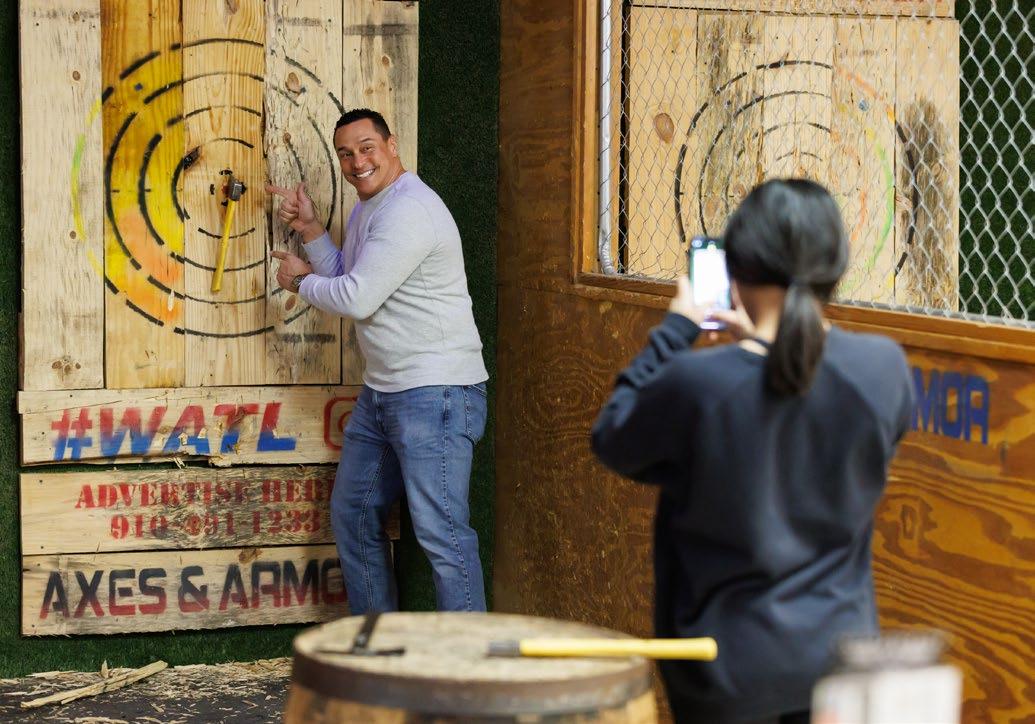
Army Sgt. 1st Class Markes Johnson and his daughter Xahara, threw axes and played a game of cornhole during an impromptu dad/daughter date night at Axes and Armour on Raeford Road. Photo by Tony Wooten
Our columnists this month explore love in diverse ways: our first celebrates Freelance Writers Appreciation Week with her confessions as a freelance writer, the second discusses how children navigate Valentine’s Day, the third explores marital love and the last highlights looking for love through books.
The main event on our To-Do List this month is CityView’s Power of Giving Community Impact Awards luncheon presented by the Public Works Commission from 11 a.m. to 1:30 p.m. Feb. 11 to honor the award winners. Scan the page’s QR code to buy tickets. There are other events this month you can add to your calendar with this month’s To-Do List on page 44.
We were at the scene of An Affair to Remember’s 2025 A Girl to Remember Runway Extravaganza Fashion Show on Saturday, Jan. 11, at The Crown Complex. If you strutted down the pink carpet that day, you may be in this month’s magazine. Go to page 30 to find out.
We hope this issue will fill your heart with all kinds of love.
Thank you for reading!
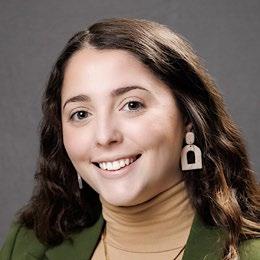
Magazine Editor
For comments, questions, feedback, or to submit story ideas, email vcloes@cityviewnc.com.
enjoy an evening in downtown Fayetteville as Christmas decorations begin adorning the streets on Nov. 17, 2024.

BY MARY ZAHRAN
In February, we celebrate Groundhog Day, Presidents’ Day, Valentine’s Day and Black History Month. Did you know we also observe Freelance Writers Appreciation Week in February?
I didn’t know this and I am a freelance writer. We must be pretty important because we are celebrated for an entire week, unlike the groundhog, Saint Valentine and our presidents, who are only honored for a single day.
My “career” as a freelance writer began when I was in the 4th grade. My teacher gave the class an assignment to write a letter to God asking for the one thing we wanted most in the world.
While most of my classmates asked for toys or pets, I asked for world peace. To this day, I have no idea why I chose that — I liked toys and dogs as much as anyone else in my class and I wasn’t particularly religious. For some reason, world peace seemed to be the best thing to ask for. Apparently, my teacher was deeply moved by my letter and gave it to her minister to read to the congregation the following Sunday. She called my mother to inform her of my altruistic request and to thank her for raising such a remarkable child.
I was a local celebrity for the next few weeks, as other ministers read my letter to their congregations. If they only knew what a mischievous child I was when I wasn’t busy writing letters to God, they might have chosen another topic for their sermons.
I am not telling this story to impress anyone but to convey my continuing amazement at the power the written word possesses. My mother and many of my teachers cultivated in me a love of books and respect for the profound effect they can have on readers.
At a young age, I had the privilege of knowing what my words meant to others. This is a lesson I have never forgotten.
Several years later, I became an assistant editor for my high school newspaper. My English teacher was the faculty advisor and I learned a lot from her about journalism. She taught me how to crop photos and how to edit articles. We were working under conditions that people today would describe as primitive. We had typewriters instead

of computers and dictionaries instead of spell checkers, but we managed to turn out pretty good editions.
Several decades later, I began writing a slice-of-life column for CityView magazine that has allowed me the freedom to discuss many different topics. I have not only covered a wide variety of subjects, but I have also written these columns under what many readers would consider interesting circumstances.
I have written a column while sitting in a chair at a hair salon, hoping my hairdresser would not spill dye on my notebook. I don’t usually expose my rough drafts to possible destruction, but I was eager to write down my thoughts before they slipped away.
Ironically, I cannot recall the title of this article, but at the time, risking the possibility of a double color treatment — one on my head and the other on my lap — seemed like a good idea.
I have written columns while waiting in a medical office to be called back to see my doctor, firmly believing that taking this opportunity to put my thoughts on paper was a better use of my time than reading a magazine in the waiting room that was three years old.
I have also written columns in bed with my husband beside me, sleeping like a baby. On more than one occasion, I have had to fight the urge to fall asleep, determined to write down my thoughts before I forgot them.
It has been decades since I was a little girl writing a letter to God that would inspire sermons. That experience taught me about the power of the written word and I have never forgotten it.
While I write a slice-of-life column that is sometimes whimsical and sometimes poignant, I always write with the belief that readers may identify with my stories. Whether my column makes them laugh or cry, I always write from the heart, humbled by the knowledge that I am able to connect with them through my words.
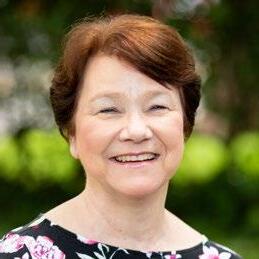
Mary Zahran, who no longer writes columns while sitting in a chair at the hair salon, can be reached at maryzahran@gmail.com.
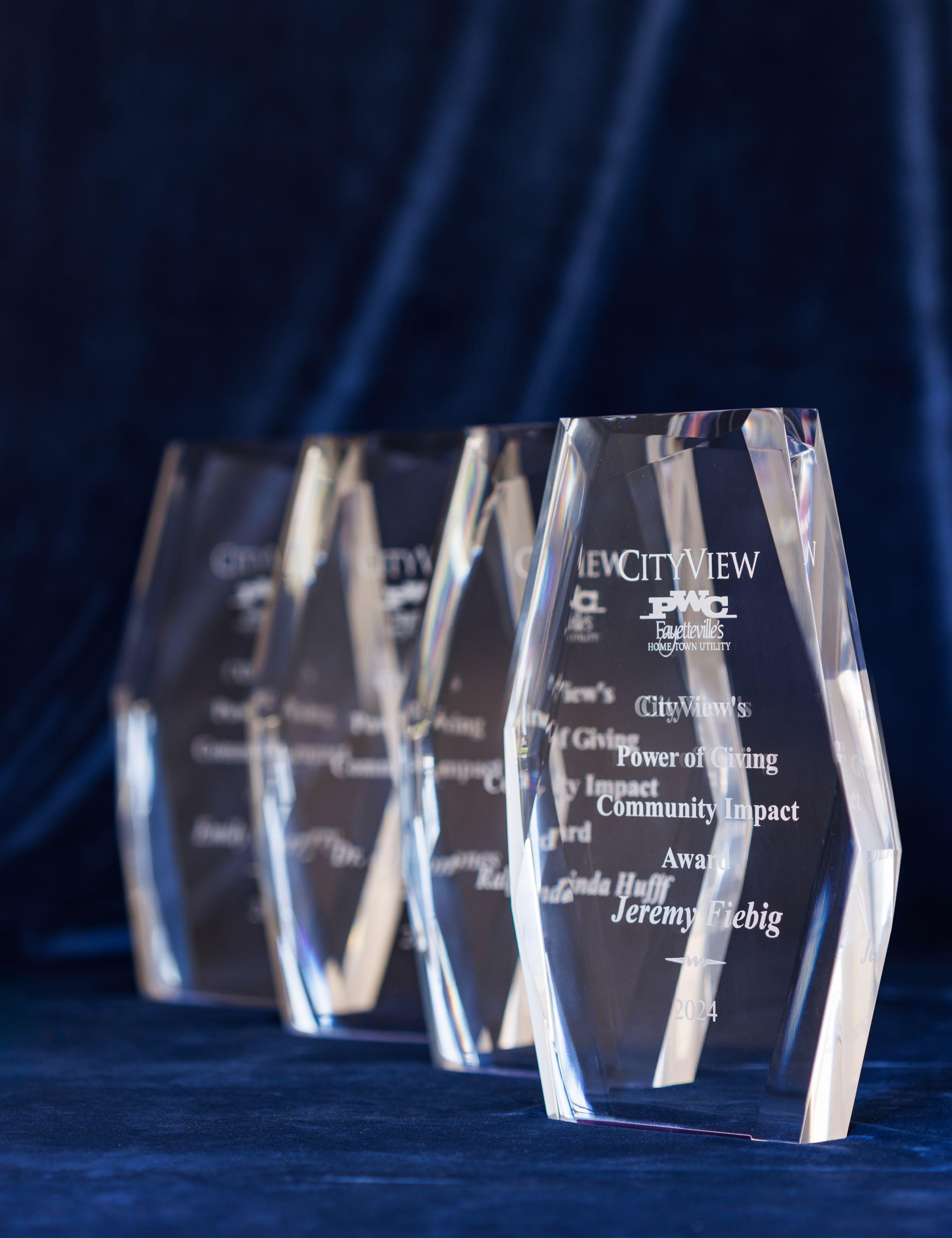
Join CityView in celebrating The Power of Giving Community Impact Awards presented by the Public Works Commission at a special luncheon, Tuesday, Feb. 11, 11:30 a.m. to 1:30 p.m. at Segra Stadium.
BY CLAIRE MULLEN
“Mom, I think I might have a Valentine.”
These words, uttered in a rather incredulous tone by an 8-year-old little boy as soon as he climbs into the backseat from the school carline, are enough to make any mama raise an eyebrow and sputter the afternoon coffee she’s sipping from her travel mug.
When my own son made this revelation on our ride home from school one day in early January, I had to glance in the rearview mirror to make sure that I had, in fact, picked up the right kid. A Valentine?? The same boy who vowed to never get married and instead live forever at home with his parents, covers his eyes during mushy scenes in Disney movies, teases his big sister relentlessly about the boys she thinks are cute on tween sitcoms and, at the first wedding he attended, unleashed a very audible “GROSS!” when the bride and groom kissed?
Yes, it was my boy, looking a bit wide-eyed and befuddled, but with a funny little half smile on his face.
I knew that rather than launch an immediate interrogation, I had to tread carefully in my handling of this sensitive subject, so as not to cause the respondent to shut down and give me the age-old “nevermind, Mom,” reply.
“Ok, Buddy. How come you just think you might have a Valentine?” My son took a long pause and I could tell he was pondering whether delving into the specifics of the day’s event was worth an insufferable round of “21 Questions” with his mother.
“Well … ”, he began, “We were out on the playground at recess and [girl’s name] came up to me and said, ‘Will you be my Valentine?’ and I told her yes, but the problem is that [boy’s name] was standing right beside me and he said yes, too, right at the same time and we couldn’t tell which one of us she was talking to!”
Cue the second time on the drive home that I almost spit out my coffee. “So, see?” he continued, “Now I don’t even know if I have a Valentine or not.”
When I’d finally composed myself after fighting like heck to contain my laughter, I dared to ask the question, “OK … so … why didn’t one of you just ask her?”
My son met the question with the same trademark exaggerated shrug that is so often his response to why he did or did not do something.
And so, that is the great Valentine’s conundrum that we are currently still facing.
My 2 nd grader continues to wonder whether he should let curiosity get the best of him and try to determine if he was, in fact, the intended recipient of the Valentine invitation, or go with his inclination to just pretend like the whole thing never happened.
I continue to wonder what exactly a Valentine even is in the 2 nd grade. It was my (perhaps misguided) impression that 8-year-old boys and girls are too busy spending every other day inoculating themselves against the cooties with “circle circle, dot dot” shots and stating their cases on who rules and who drools to pay much mind to the intricacies surrounding Feb. 14
I have a feeling that my son doesn’t care much whether he has a Valentine or not and I figure that he has quite a few years to go before he actually does.
But you better believe that one girl already has an extra large, heart-shaped box of his favorite Sour Patch Kids Watermelon candies stashed away just in case he does care and that girl will always and forever be tickled pink to be his backup Valentine.
After all, who could love an 8-year-old little boy more than his own mama?
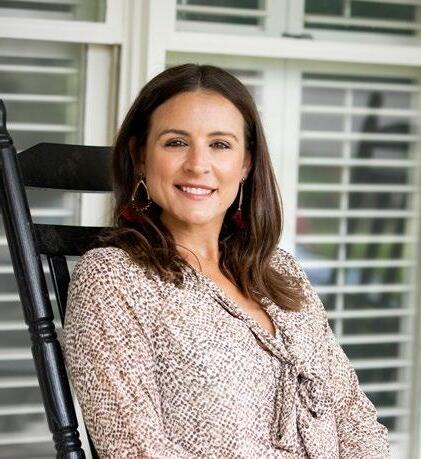
Claire Mullen can be reached at clairejlmullen@gmail.com.

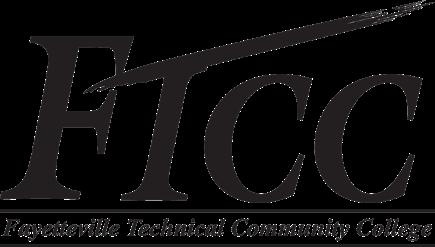





One generation at a time, African American genealogists dig deep to uncover the stories of long-lost ancestors, convening at a conference at Fayetteville State University
BY TERI SAYLOR | PHOTOGRAPHY BY TONY WOOTEN
AAfter spending 20 years digging through historical records and connecting with long-lost kin, Desi L. Campbell traced the roots of his family tree all the way back to his ancestors in Africa.
With an old soul and a thirst for making connections, Campbell is a lifelong learner and a teacher. Born in Washington, D.C., he has planted himself in Lillington where his father grew up and generations of his people made their homes. Through genealogy, Campbell discovered his place in the world and is helping others find their place too.
“I didn’t grow up in Harnett County, but coming here six years ago was the best move I could have made,” he said. “I love that I can go down the street to a cousin’s house just sit on the porch and enjoy good conversation.”
Campbell is a 5th-grade teacher at Lillington-Shawtown Elementary School. He also serves as the executive director of the Harnett County African American Heritage Center and president of the Sandhills Chapter of the AfroAmerican Historical and Genealogical Society. Sandhills is one of four North Carolina AAHGS chapters, with others in Charlotte, Greensboro and Raleigh.
Earlier this month, the Sandhills chapter hosted “Faith, Valor and Learning,” a three-day genealogy conference at Fayetteville State University.
In 12 interactive workshops, speakers told stories and demonstrated methodologies and practical resources related to African American genealogy. Campbell led workshops teaching participants how to launch their journey into genealogy and build out their family tree.
For fledgling genealogists, simply getting started can be daunting and the conference aimed to smooth the pathway.
The key is to start small, keep it simple and aim for going back just a couple of generations, advises Wanda Cox-Bailey, a retired librarian who worked with the Wake County Public Library System. She is president of the AAHGS Raleigh Chapter and was one of the conference speakers.
“Start with yourself and list your two parents and if your parents each have two parents, that’s four more and if you go back another generation you get to 16,” she said. “By the time you add aunts and uncles and their other siblings, your family tree grows enormously.”
Campbell realized the breadth of his own family tree’s branches when he embarked on his long journey to find his roots.
With the help of DNA records, Campbell met Deena Hill, a distant relative in Utah, who is white and a member of the Church of Jesus Christ of Latter-day Saints. Using DNA, wills, obituaries and other records, the two traced their family’s lineage to their 18th-century enslaved ancestors Jennie and Joe McLean and finally to Jennie’s African origins.
Both Campbell and Hill have described the harrowing transatlantic slave trade Jennie’s parents survived when they were brought to Virginia from the Igbo nation in Nigeria.
Jennie was sold to a Harnett County landowner where
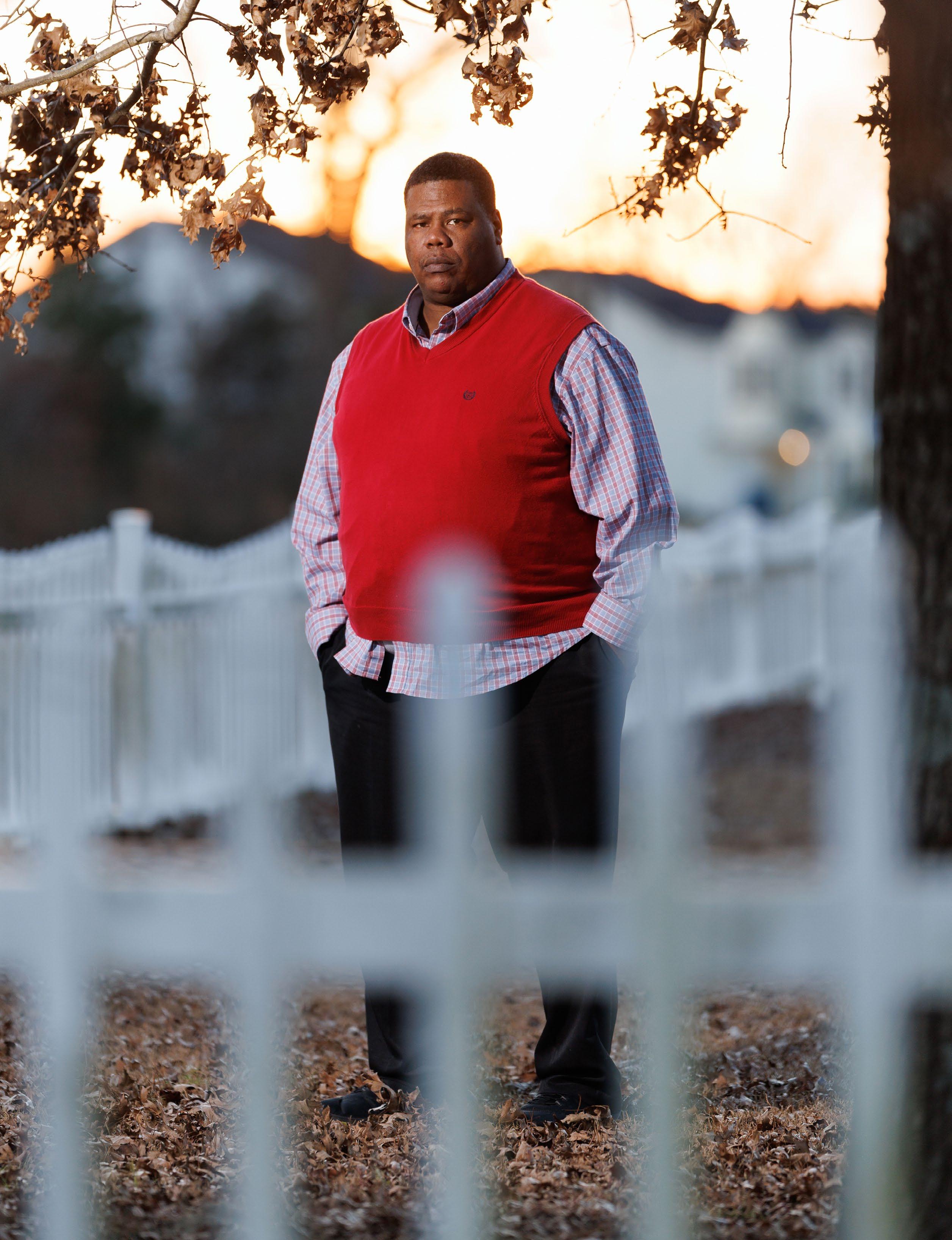
the

she united with Joe and had 14 children. Over the years, the family was torn apart as parents and children were sold or passed around among family members.
Last year, Campbell and Hill co-wrote the documentary A Slave Named Jenny about their lives.
Wanda Cox-Bailey, who has roots in Cumberland County, has traced the maternal side of her family back six generations. She points to genealogy’s power to instill a sense of pride in families, even if they are rooted in humble beginnings.
“You can discover extraordinary details in ordinary lives and learn that your ancestors were resilient and persevered in times of strife and in times of joy,” she said.
For Campbell, tracing his ancestors came naturally, starting with his deep childhood curiosity about his origins. He grew up spending summers with his maternal
grandparents in Spivey’s Corner, a small town in Sampson County, famous for its annual hollering contest that started in 1969 and lasted almost 50 years before ending in 2016.
“I was fortunate that my grandparents and my greatgrandparents lived near each other on the same land,” he said. “I could go from house to house visiting them and other relatives and neighbors.”
Campbell’s parents moved from Washington, D.C., to Zebulon, North Carolina, when he was 13 and after graduating from high school in 1987, he enrolled at Johnson C. Smith University in Charlotte. That’s where his history began to unfold. He met a few of his cousins and started attending family reunions.
At church, he befriended Daisy Humphrey Furbush, who devoted the last 25 years of her life to tracing her family genealogy. A native of Robeson County, she was a member of the Charlotte Chapter of the AAHGS and had distant relatives whose last name was Campbell, the same
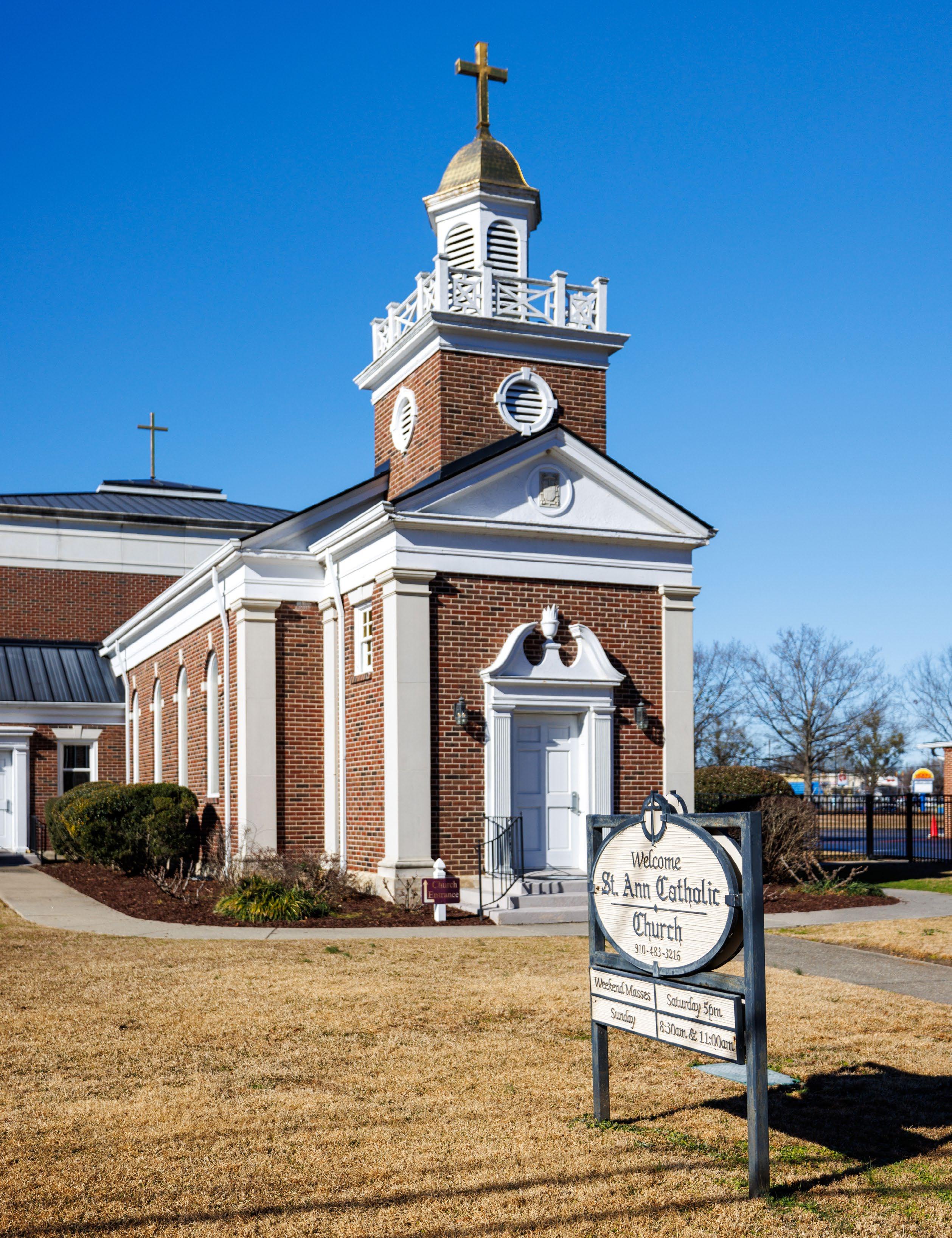
In protest of segregated Catholic churches, a group of African Americans founded the Saint Ann Catholic Church in 1934. It is now a part of the African American Heritage Trail in Fayetteville.

as Desi Campbell’s. She was eager to take the inquisitive young man under her wing and show him how to trace his ancestors using the popular site Ancestry.com.
“We were tight,” Campbell said. “She treated me like a son and showed me how to build a family tree.”
Humphrey Furbush passed away in 2019.
Calling himself “an old folk person” because of his love for elders, Campbell started his genealogy journey talking with and learning from longtime residents of his community who provided pictures, obituaries and other artifacts and paperwork that aided his research.
“Using obituaries, I visited cemeteries and gleaned a lot of information from them,” he said, “and then I’d go to the
county and state archives and research records.”
Researching family history in North Carolina can be challenging. The state didn’t keep records of births and deaths before October 1913, although some counties do maintain earlier data.
And U.S. Census records didn’t record African Americans by name prior to 1870, the first census after the Civil War. Before the war, enslaved individuals were listed statistically under the names of those who claimed them as property.
That’s why genealogists turn to Ancestry.com, a subscription-based website with a vast collection of historical records that helps users take a deep dive into their family history. Ancestry.com also has a DNA testing program and for Campbell, that was a game changer.

It was the link connecting Campbell with Deena Hill that led them to reconstruct a family that had been fragmented over 200 years ago and enabled them to share their collective narrative with the world.
“Our journey with DNA opened up a whole new realm of possibility,” Campbell said. “We’ve successfully connected over 300 individuals, all descendants linked to Joe and Jennie McLean.”
Last summer, the clan held a DNA family festival uniting over 150 people from across the nation all related to each other.
For his efforts, Campbell received the North Carolina Genealogical Society’s 2024 Award for Outstanding Contribution to N.C. Genealogy.
At the AAHGS genealogy conference, participants enjoyed a daylong tour of Fayetteville’s storied African American Heritage Trail, a collection of 23 sites that provide a historical glimpse into the lives of African Americans who resided in Fayetteville and Cumberland County.
The sites include the grave of Isaac Hammond who served in the 10th N.C. Regiment Continental Line during the Revolutionary War, became a barber in town and participated in politics even though Black people were not permitted to vote at that time.
Round-A-Bout 1 - Raeford Rd. (71st) 115 Skateway Drive Fayetteville, NC 28304
Evans Metropolitan A.M.E. Zion Church, founded by Henry Evans, is on the route too. A free Black man, he was a traveling shoe cobbler during the late 1700s in North Carolina. He stopped in Fayetteville, felt the call to preach to those enslaved in the area and started the church.
The historic Market House is one of the last stops on the trail. While not built as a slave market, enslaved people were sold there until slavery was abolished in 1865.
These sites have the power to link Cumberland County’s past with its present and genealogical research provides those connections.
Round-A-Bout 1 - Raeford Rd. (71st) 115 Skateway Drive Fayetteville, NC 28304
Round-A-Bout 1 - Raeford Rd. (71st) 115 Skateway Drive Fayetteville, NC 28304
Round-A-Bout 1 - Raeford Rd. (71st) 115 Skateway Drive Fayetteville, NC 28304
Round-A-Bout 1 - Raeford Rd. (71st) 115 Skateway Drive Fayetteville, NC 28304
Round-A-Bout 1 - Raeford Rd. (71st) 115 Skateway Drive Fayetteville, NC 28304
Tel: 910-860-8900
Tel: 910-860-8900
Tel: 910-860-8900
Tel: 910-860-8900
Tel: 910-860-8900
Tel: 910-860-8900
Round-A-Bout 2 - Eutaw
Round-A-Bout 2 - Eutaw 880 Elm Street Fayetteville, NC 28303
Round-A-Bout 2 - Eutaw 880 Elm Street
Fayetteville, NC 28303
880 Elm Street Fayetteville, NC 28303
Round-A-Bout 2 - Eutaw 880 Elm Street Fayetteville, NC 28303
Tel: 910-484-4465
Round-A-Bout 2 - Eutaw 880 Elm Street Fayetteville, NC 28303
Tel: 910-484-4465
Round-A-Bout 2 - Eutaw 880 Elm Street Fayetteville, NC 28303
Tel: 910-484-4465
Tel: 910-484-4465
Tel: 910-484-4465
Tel: 910-484-4465
Round-A-Bout 3 - Goldsboro 1305 Parkway Drive Goldsboro, NC 27534
Round-A-Bout 3 - Goldsboro 1305 Parkway Drive Goldsboro, NC 27534
Round-A-Bout 3 - Goldsboro 1305 Parkway Drive Goldsboro, NC 27534
Round-A-Bout 3 - Goldsboro 1305 Parkway Drive Goldsboro, NC 27534 Tel: 919-778-1831
Round-A-Bout 3 - Goldsboro 1305 Parkway Drive Goldsboro, NC 27534
Tel: 919-778-1831
Tel: 919-778-1831
Tel: 919-778-1831

Round-A-Bout 3 - Goldsboro 1305 Parkway Drive Goldsboro, NC 27534 Tel: 919-778-1831
Tel: 919-778-1831
www.round-a-bout.com Round a
a Bout Skate Centers Skate Centers
www.round-a-bout.com
www.round-a-bout.com
www.round-a-bout.com
www.round-a-bout.com
www.round-a-bout.com
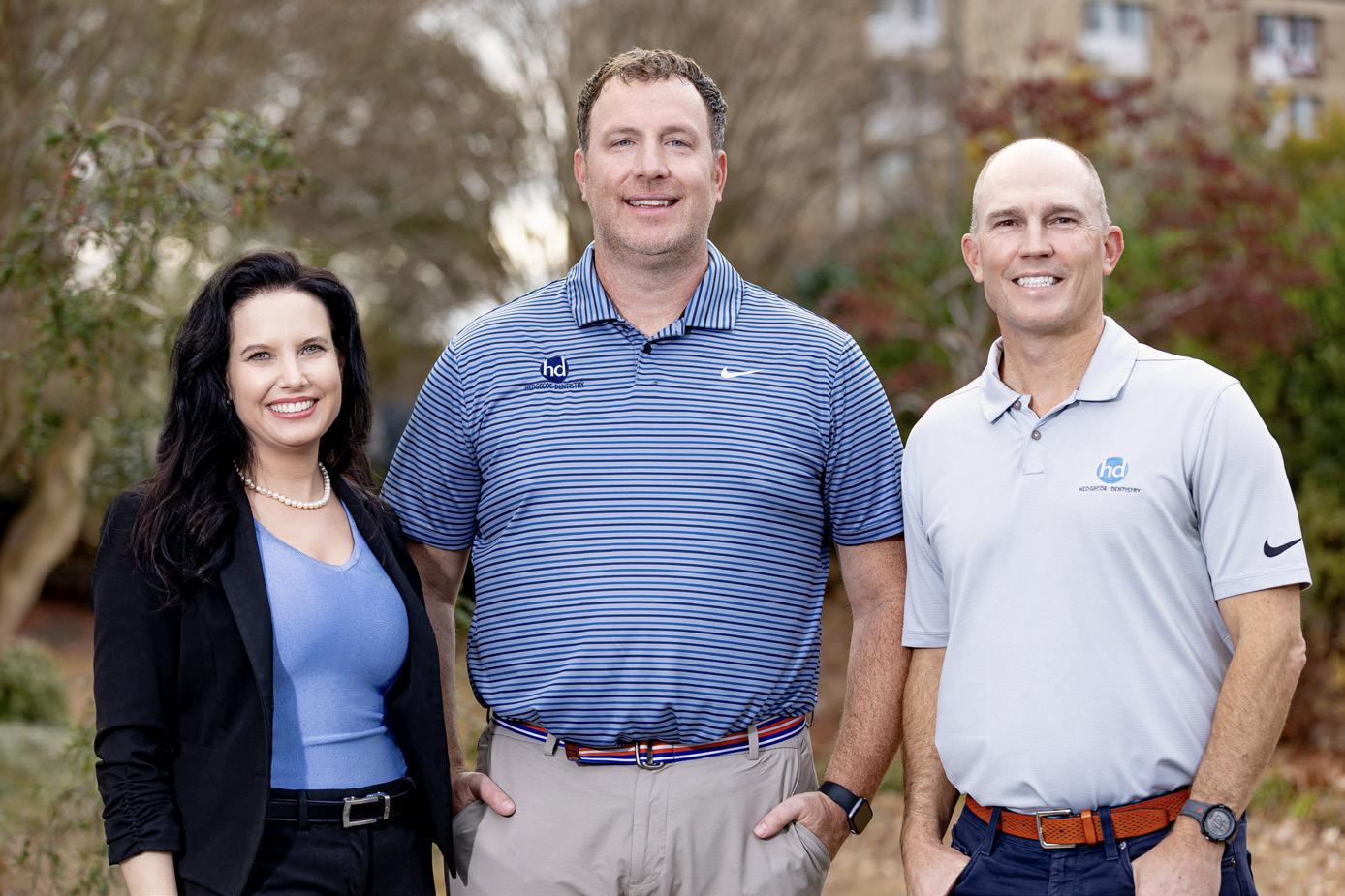
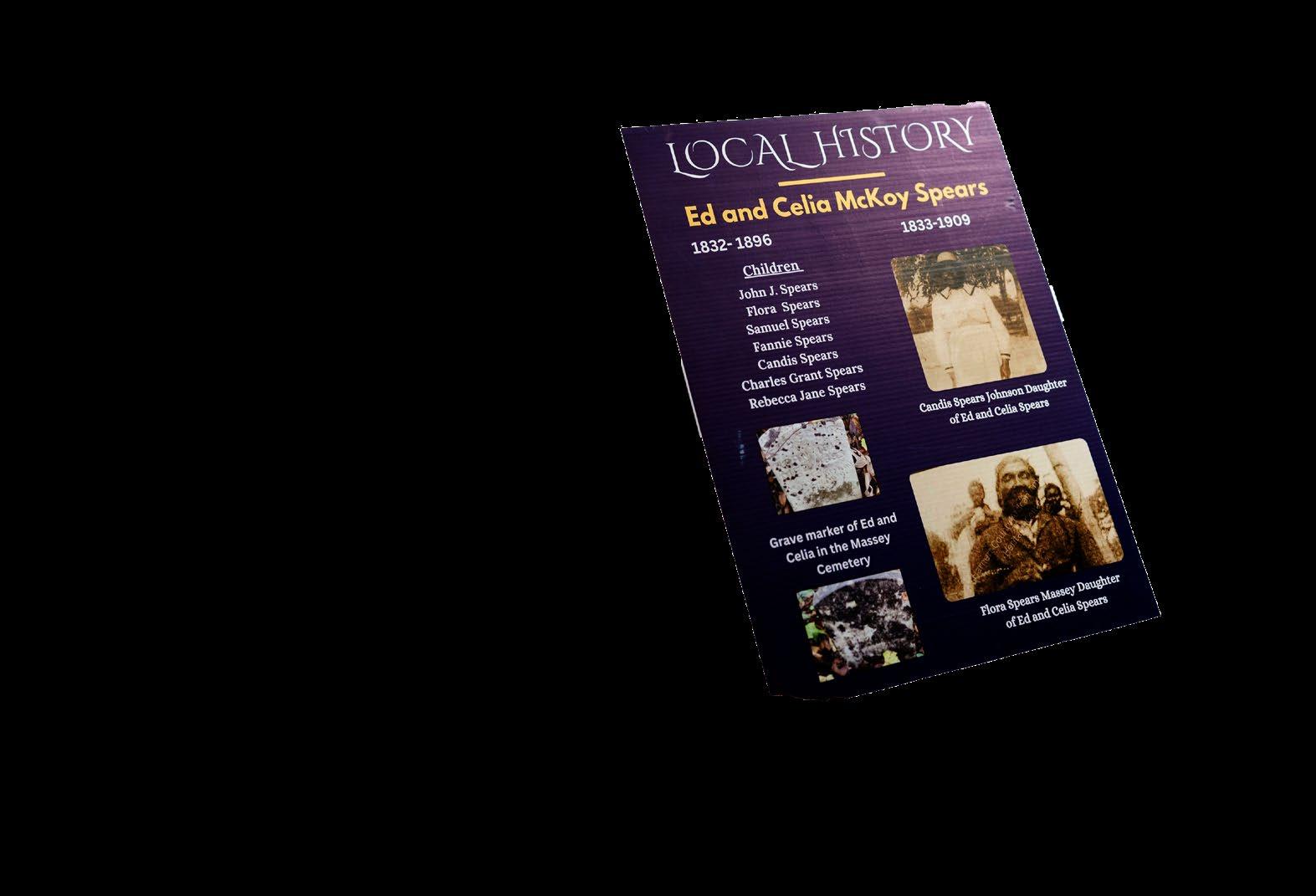
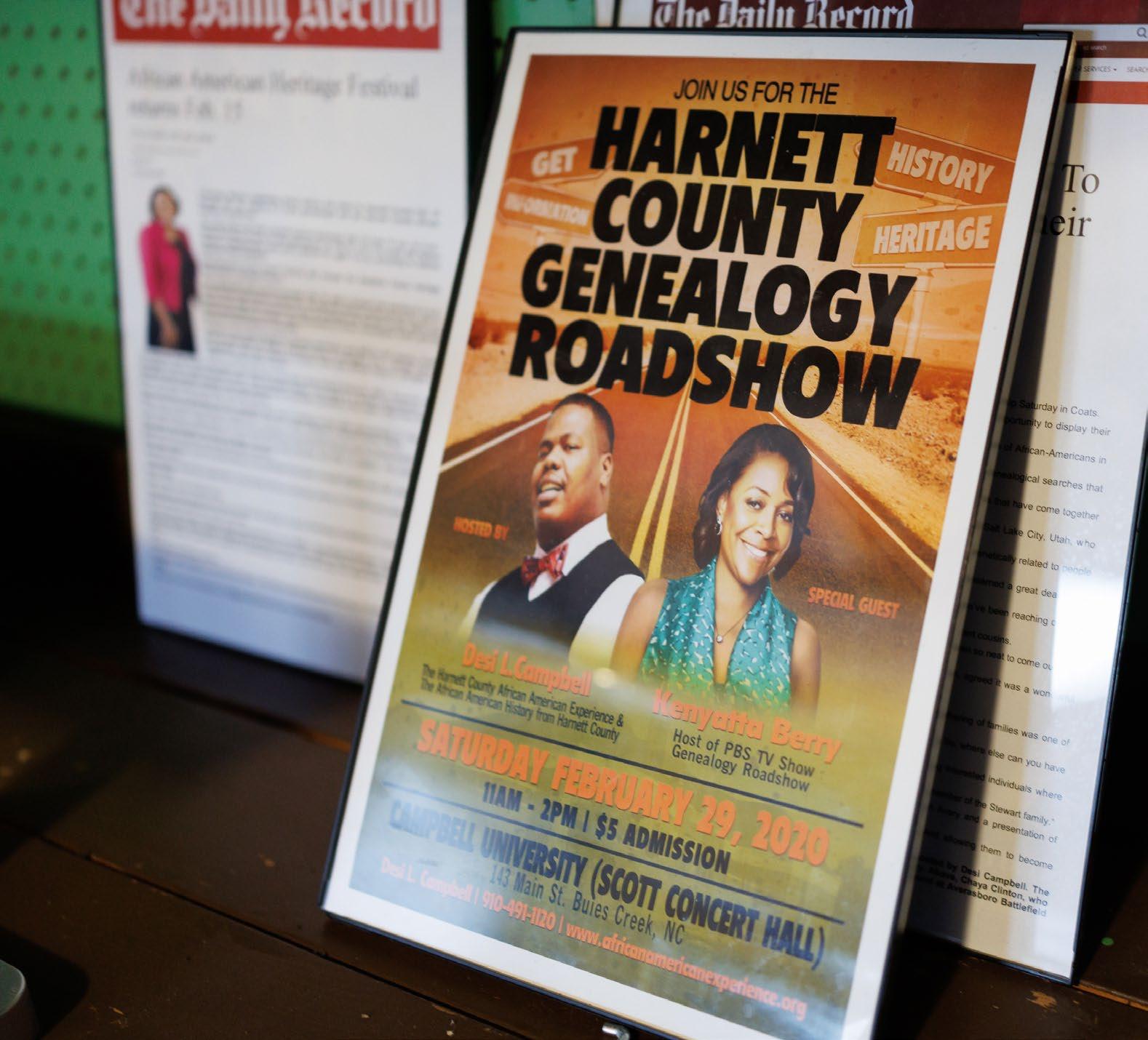
Wanda Cox-Bailey views genealogy as a way for individuals to realize a sense of place and belonging. And it has the power to knit communities together.
“Being part of a community instills pride,” she said. “When you search for your ancestors, you discover the depth of your roots and you get a strong sense of who you are.”
One of the most important stories in Cox-Bailey’s family history comes from her father’s side. He served in the military and the family was frequently on the move. But every summer they visited relatives in Cumberland County and brought her grandmother who lived to be almost 100.
She recalls the family always took a long and winding route through Fayetteville to avoid driving past the Market House.
“My grandmother could not stand to see the Market House,” Cox-Bailey said. “She cried every time she saw it because her mother was sold there.”
Cox-Bailey knows that many people have important family stories they tell over and over and pass down through generations.
“The Market House is part of my family’s story,” she said. “And that’s the story I never want to lose.”
For Campbell, who learned his forefathers came from the other side of the world and settled in North Carolina before they were even recognized as individuals, he is pleased that he can share their stories and celebrate their lives.
“It has been thrilling to discover my ancestors’ on long lost wills and on gravestones,” he said. “And I’m grateful that I can actually see their names in print.”
Teri Saylor is a freelance writer based in Raleigh.
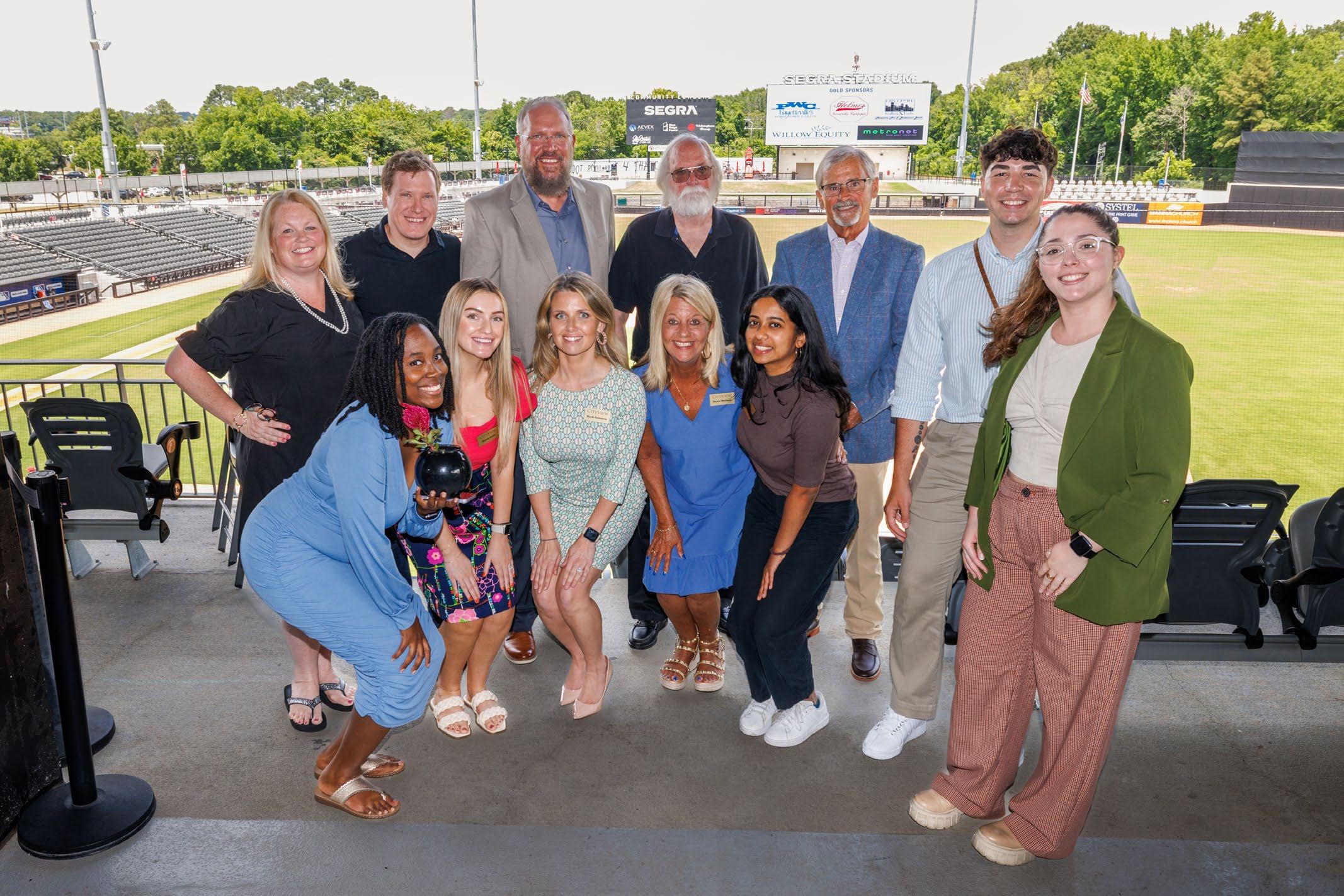
CityView Media will begin distributing ENGAGE Magazine, the Greater Fayetteville Chamber’s official business publication, CityView and the chamber announced Tuesday.
CityView Media will begin distributing ENGAGE Magazine, the Greater Fayetteville Chamber’s official business publication, CityView and the chamber announced Tuesday.
The first ENGAGE Magazine to be published through CityView will be its Winter edition.
CityView Media — as Cumberland County’s premier lifestyle magazine and local news provider — publishes both CityView Magazine and CityView Today, an email newsletter. CityView Magazine is distributed to over 100 rack locations throughout Cumberland County.
“CityView is proud to enter this partnership with the Greater Fayetteville Chamber to distribute ENGAGE Magazine,” said Valeria Cloës, magazine editor and lead
copy editor at CityView. “Through this collaboration, we will be continuing our shared commitment to connect and build our community.”
ENGAGE, which is published quarterly, features updates on industry news, strategies for growth and highlights members’ success and upcoming events. The journal is intended to provide local business community members with key industry developments and insights.
“We are excited to enter into this new partnership with CityView Media,” Chamber President/CEO Nat Robertson said. “CityView has the largest circulation in Cumberland County and it will be a great way to get our business journal out to the community.”
When Evelyn Fay Spicer’s husband, Bob Spicer, developed Alzheimer’s and then the debilitating stroke, she never left his side. “She said that was her place,” a daughter remembers. Evelyn Fay Ingle Spicer died peacefully at age 98 on Nov. 18 in her home.
BY BILL KIRBY JR.
SOURCE IMAGES FROM ADOBE STOCK, ILLUSTRATIONS BY NICOLE PAJOR
MOORE
TThe red, brick home overlooking the double hills in Highland Village just up from the city park was home for Fay Spicer.
She loved her colorful azaleas that bloomed each spring. She enjoyed the smell of the freshly cut grass, when her husband Bob Spicer kept the front yard manicured to a tee. She savored those moments when a father and son played catch with the baseball in the front yard.
“She adored her home,” Rhonda Carper, 69, would remember her mother on this Nov. 24 day of celebration.
Home is where the heart is and for this “sweet lady” of grace and kindly ways, there was no place like what a daughter would describe as “the house on the hill” that Fay Spicer called home for 63 years.
“It was a beautiful life of love,” said the Rev. Sandy Saunders. “A life of purpose.”
Fay Ingle was a country girl who grew up on a farm in Arkansas as the second oldest of nine children, where they came to know hard times including the stock market

crash of 1929 that led to the 10-year Great Depression and World War II of 1939 to 1945.
“She grew up fast in the Great Depression and World War II,” son Bobby Spicer said.
Life was stressful in the financially difficult years of the Great Depression.
“They had a tough life, but they kept on going,” Carper said, “She knew what an outhouse was and they had a well to get water.”
Fay Ingle was an attractive young woman with an engaging smile and a penchant for dancing and her beauty caught the eye of a young soldier at Camp Robinson, the military base in Little Rock, Arkansas. They married July 9, 1946, in Newport, Virginia and in 1948 made Fayetteville home, where Bob Spicer played professional baseball for the old Fayetteville Highlanders and later the Major League farm team of the Chicago Cubs that would lead to stints with the Los Angeles Angels and the Kansas City Athletics.
She was his bride for 69 years.
She adored her knight in shining armor.
“She said the secret to a happy marriage was



Wherever you saw the couple together, Bob Spicer held her hand. Fay Spicer always tightly clutched her husband’s arm.
They reared a daughter and a son in a Christian home.
“They made sure we went to church,” Bobby Spicer said. The Spicer family worshipped at Snyder Memorial Baptist Church, joining in 1951.
Fay Spicer worked as a teacher’s assistant for Cumberland County Schools and she knew the value of what education would mean in raising children, including her own.

“She made sure we made straight A’s,” Bobby Spicer said. And missing a day of school, his sister said, was not acceptable.
“And she taught us right from wrong,” Bobby Spicer said. “She always would find out about my shenanigans and I spent many a day at the weeping willow tree for misbehaving. I want to thank our neighbors for cutting down that tree.”
Bob Spicer was diagnosed with Alzheimer’s disease and later suffered a stroke before his eventual death at age 90 on Feb. 7, 2016.

“Mom never left his side,” Rhonda Carper told us. “She
A husband’s death broke a wife’s heart.
“When Dad died, she began to decline,”
Carper said, “We were determined to keep her at home, God willing.”
Even with home caregiving assistance, Bobby Spicer checked on his mother often throughout each day and would call his sister, who resides in Port Orange, Florida, to tell Rhonda Carper how their mother was faring.
“Bobby,” she looked toward her brother, “thank you for your devotion and
Fay Spicer’s twilight years were pensive. She kept up with news from her church and those she came to know through the cards and letters they would send to her home. She liked quiet moments just to herself to relive memories of yesteryear fondly.
Evelyn Fay Ingle Spicer died peacefully on Nov. 18 at her Highland Village neighborhood home.
“She is dwelling in the house of the Lord forever,” Saunders, the preacher, would
tell us. “Fay knew the way, because Fay knew Jesus. When the angel whispered, the angel said, ‘Fay, it’s time to come home.’ And the first person she saw was Jesus and his face. And Bob.”
Saunders remembered a woman of gentleness.
“What you saw in her, put it into your practice,” he said. “The first thing you learned from her was her love for God, then her children and grandchildren. Fay loved everybody and Fay loved every day.”
The red, brick house overlooking the rolling double hills not so far from the city park was not just a house, but a home for Fay Spicer and filled with cherished family photographs of happy days, months and years and the figurines and pictures of the red cardinals that brought her joy.
“Our parents were so good to us,” Rhonda Carper said, remembering her parents’ love for her and her brother for all of their lives. “Thank you, Mom, for never giving up on me and Bobby. So, fly away to heaven, Mama cardinal. Reunite with Papa cardinal and be at peace.”

Sondra Bemesderfer, heart attack survivor
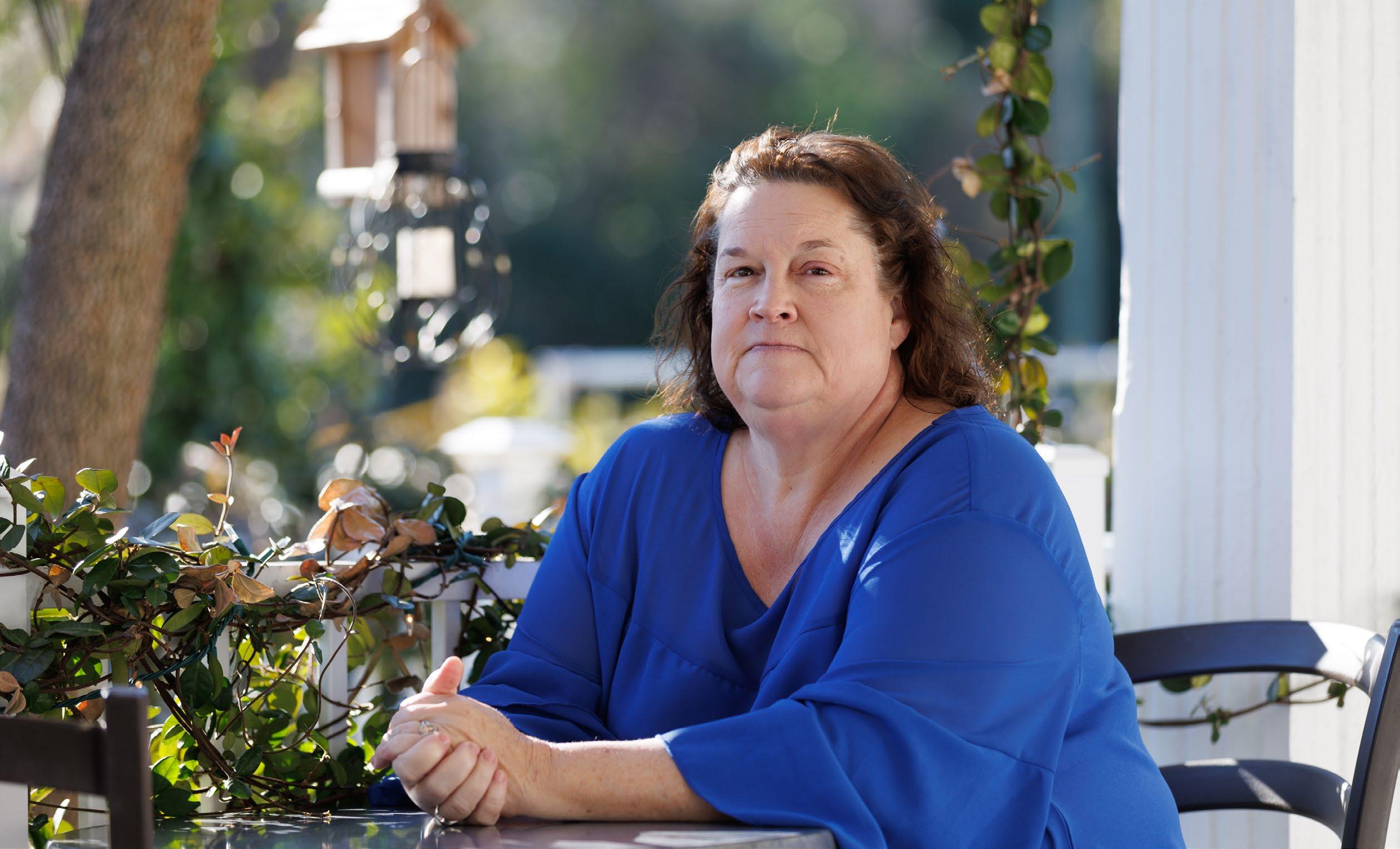
During American Heart Month, Cape Fear Valley Health specialists say that for women, being tired, having back pain or feeling nauseated can be signs of a heart attack
BY JAMI MCLAUGHLIN | PHOTOGRAPHY BY TONY WOOTEN
SSondra Bemesderfer, 53, felt fine the day she had an almost fatal heart attack.
It was out of the blue with no symptoms like chest or arm pain normally associated with heart issues.
“I had gone all day at work feeling fine,” Bemesderfer said. “My best friend who I worked with and I drove through Starbucks after work like we did every day … and when we got on All-American, I started yawning,” Bemesderfer said. “I thought it was odd that I was tired.”
After she got home, she had planned to take her dogs to Starbucks for a pup cup. But that’s when she started feeling off.
“I felt funny and couldn’t get a breath, a full breath,” Bemesderfer said.
She called her son, who worked as a trauma nurse and asked about Covid-19.
“I was sure I was coming down with something respiratory like bronchitis or pneumonia,” Bemesderfer
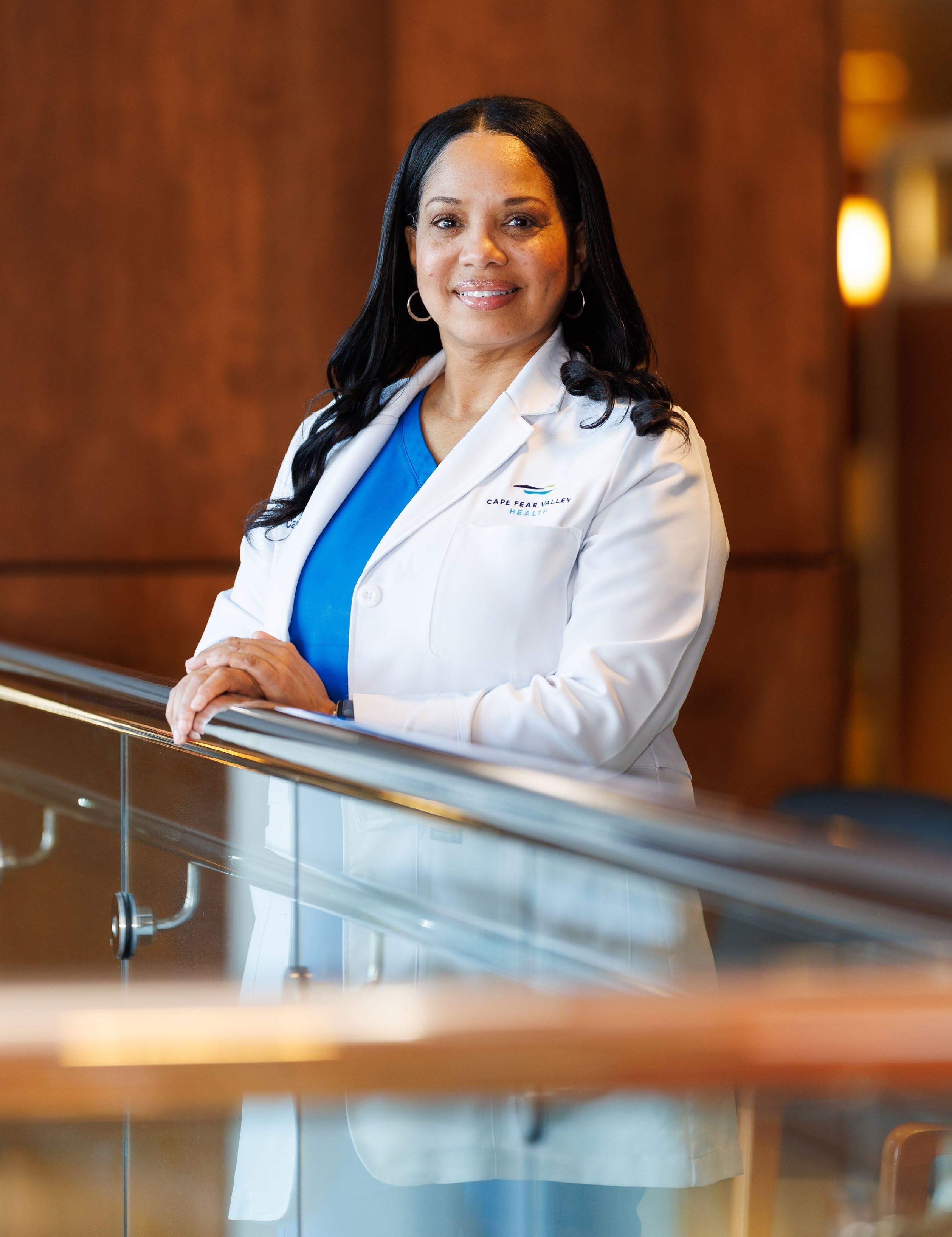
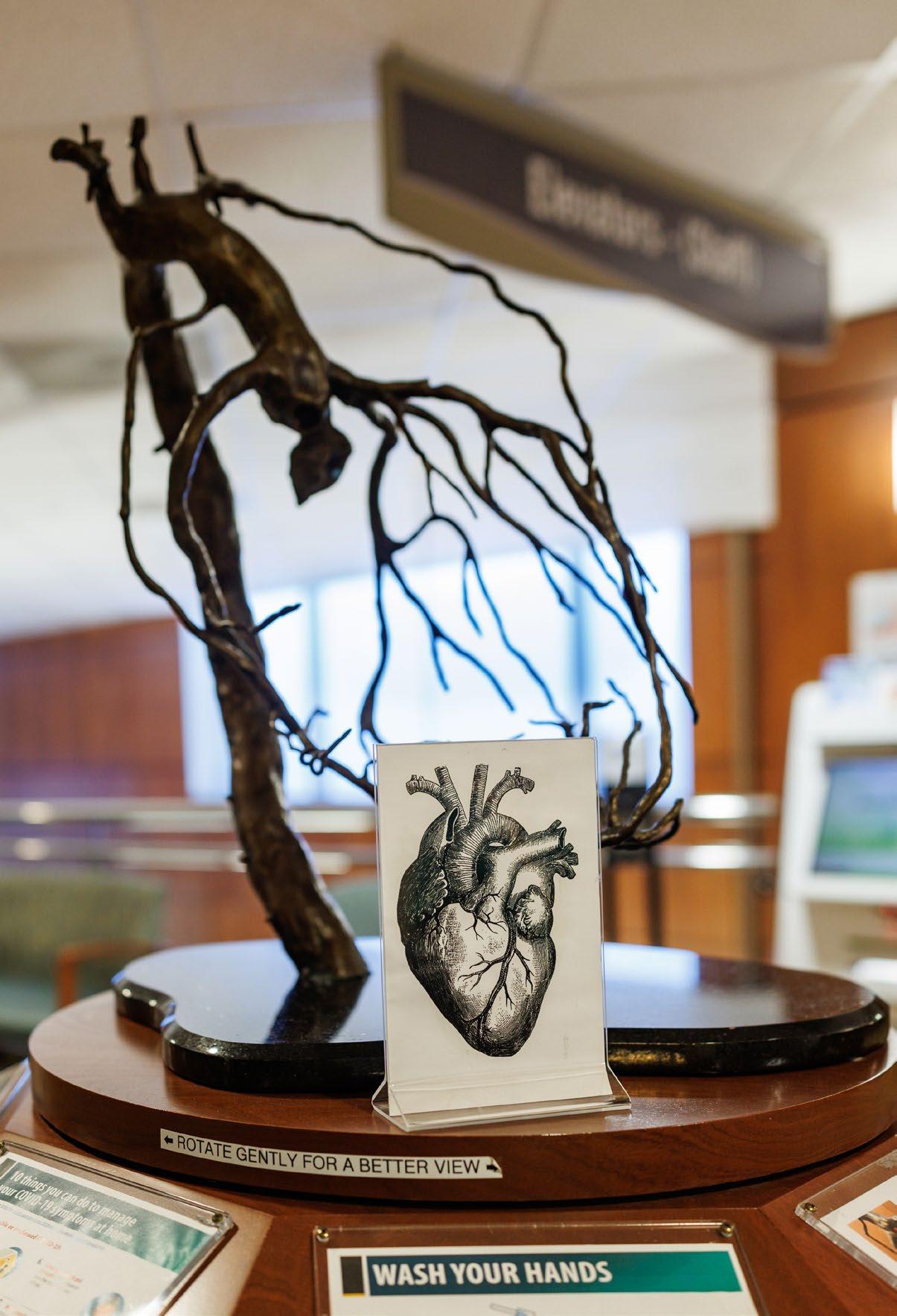
said. “I took a COVID test and it was negative.”
She went into the laundry room to get into more casual clothes and then couldn’t make it further than the bathroom in her hall when she started gasping for breath.
“I yelled at my husband to call 911,” Bemesderfer said. “Something was wrong.”
She pushed the panic button on their security system so an ambulance would be automatically dispatched.
“At that point, it was like I was trying to breathe through a cracked straw,” Bemesderfer said. “After the paramedics got there, they put the CPAP mask on me and I could breathe. I felt fine again. I even offered to walk to the ambulance.”
She said the paramedics worked quickly to get her out of the house and to the hospital.
“My son who drives a sports car could not keep up with the ambulance,” Bemesderfer said. “I still didn’t have any pain, but my blood pressure was 260/170 and my oxygen level was 62. I was nauseated, which I assumed was due to my lack of oxygen.”
According to the Mayo Clinic, a healthy level of oxygen is between 75 and 100 and blood pressure over 180/120 is considered a crisis, needing emergency medical help.
Bemesderfer was well over those healthy and in-range numbers.
Her son arrived when the paramedics did and immediately deduced that she was having a STEMI heart attack, according to Bemesderfer. A STEMI, or ST-elevation myocardial infarction, is a heart attack caused by a blockage of blood to the heart, according to the Cleveland Clinic.
Symptoms include shortness of breath, fatigue and nausea, all of which Bemesderfer was experiencing, although she still did not have any pain. She was confused as to why she was being sent to a cardiac catheterization laboratory, or cath lab, at the hospital and in such a hurry. A cath lab is a hospital room where doctors perform minimally invasive heart procedures.
“It could not have been scripted better though,” Bemesderfer said. “The entire team at Cape Fear Valley was in place when I got there, but it wasn’t until I was on the cath table that I realized this was real. I realized I was having a cardiac event.”
Dr. Mathhar Aldaoud was the cardiologist on call that night and attended to her as part of the team assembled.
“He told me that he was going to go in through my wrist to place the stent and I told him I had to get up to go to the bathroom before I realized it was serious,” Bemesderfer said. “He said time is tissue and he had to get in there. That the longer it takes to get in there, the more heart damage or more could happen.”
Bemesderfer was awake during the procedure in which they placed a stent — a tiny wire mesh tube used to hold open passages in the body to increase blood flow to the heart — and said her mind was racing while the doctor worked as fast as he could.
“I remember thinking that I was just at home, I was just at Starbucks, then I started thinking no one knows how the bills are paid or when they are paid,” Bemesderfer said. “It was an hour from the time at home to where I was on that table and I had just had a normal day at work.”
It turned out she had a pulmonary embolism, where a blood clot had moved from her lung towards her heart and her LAD was 90% blocked. The yawning was the blood clot moving, she said.
The LAD, or the left anterior descending artery, is the largest coronary artery and a blockage of blood flow can cause a heart attack, according to the Cleveland Clinic.
“That blockage in my LAD helped save my life, it gave me time to get to the hospital — I mean God has the ultimate say-so with that,” Bemesderfer said. “The doctor said if I had waited 20 more minutes, I would not have been so lucky.”
She said it was at that moment when she realized she had survived a heart attack and her life had been completely changed in the span of an hour.
The patient care manager at Cape Fear Valley Health Shonda Ray said women do not have typical symptoms and are less likely to have pain in the center of their chest.
“You see TV shows or in the movies where the man grabs
his chest and falls to the floor,” Ray, who manages both the Cardiac Surgery ICU and the Cardiac Surgery Progressive Care Unit, said. “It is not like that in real life. In real life, it can be nausea or vomiting, neck, jaw or back pain or even feelings of anxiety. You might be tired.”
She said sometimes a heart attack can even be confused with a panic attack in women.
“You know your body though and when something is wrong, pay attention,” Ray said.
And when the symptoms are all together — chest pain, shortness of breath, back pain or jaw pain — she said to call 911 immediately and to take a low dose aspirin if you have it.
“When you call 911, it activates EMS, the emergency medical system, which gets the cardiac-cath team at the hospital ready to go,” Ray said. “The patient bypasses the lobby and registration so that your patient care starts as soon as possible.”
She said their main goal is to get the blockage open.
“Time is muscle and the more time that goes by can cause heart damage,” Ray said. “Think of it like a blocked pipe.”
With 20 years of experience as a nurse on the cardiac wing, Ray said that there are factors that cannot be controlled, such as genetics and family history of heart attacks. In those cases, she said to make sure you are staying on top of blood work with your regular provider.
But there are ways that women can prevent heart attacks that are in their control, like eating healthy food, keeping stress levels down with meditation or yoga and exercising as a habit.
“Stay away from fat and salt and do not smoke,” Ray said. “The chemicals in cigarettes attack your blood vessels causing blood clots and a buildup of plaque, which cause dangerous blockages and heart attacks.”
Bemesderfer, who has diabetes, said her heart attack was caused primarily by uncontrolled blood sugar.
Since her heart attack in September 2023, her A 1C test — which shows how managed a person’s condition is by measuring the percentage of red blood cells that have sugar-coated hemoglobin — has gone from 13.7 to 6.4, putting her in a healthier range. An average below 7.0 is a good blood sugar level for those with diabetes, according to the Centers for Disease Control and Prevention.
She said she now watches everything she eats and has eliminated red meat, fast food or anything greasy from her diet.
She was not the only one who made a change in their life. Her son Paul also made the decision to go to work for Cape Fear Valley Health.
“My son was so impressed with how Cape Fear Valley Health worked so perfectly for me that night that he decided to change hospitals from where he was working as a nurse in the Emergency Department,” Bemesderfer said. “He’s now a rapid response nurse at Cape Fear Valley and just celebrated his first year.”
Bemesderfer, who stopped working after the incident to take care of her health, said that she looks at life “a whole
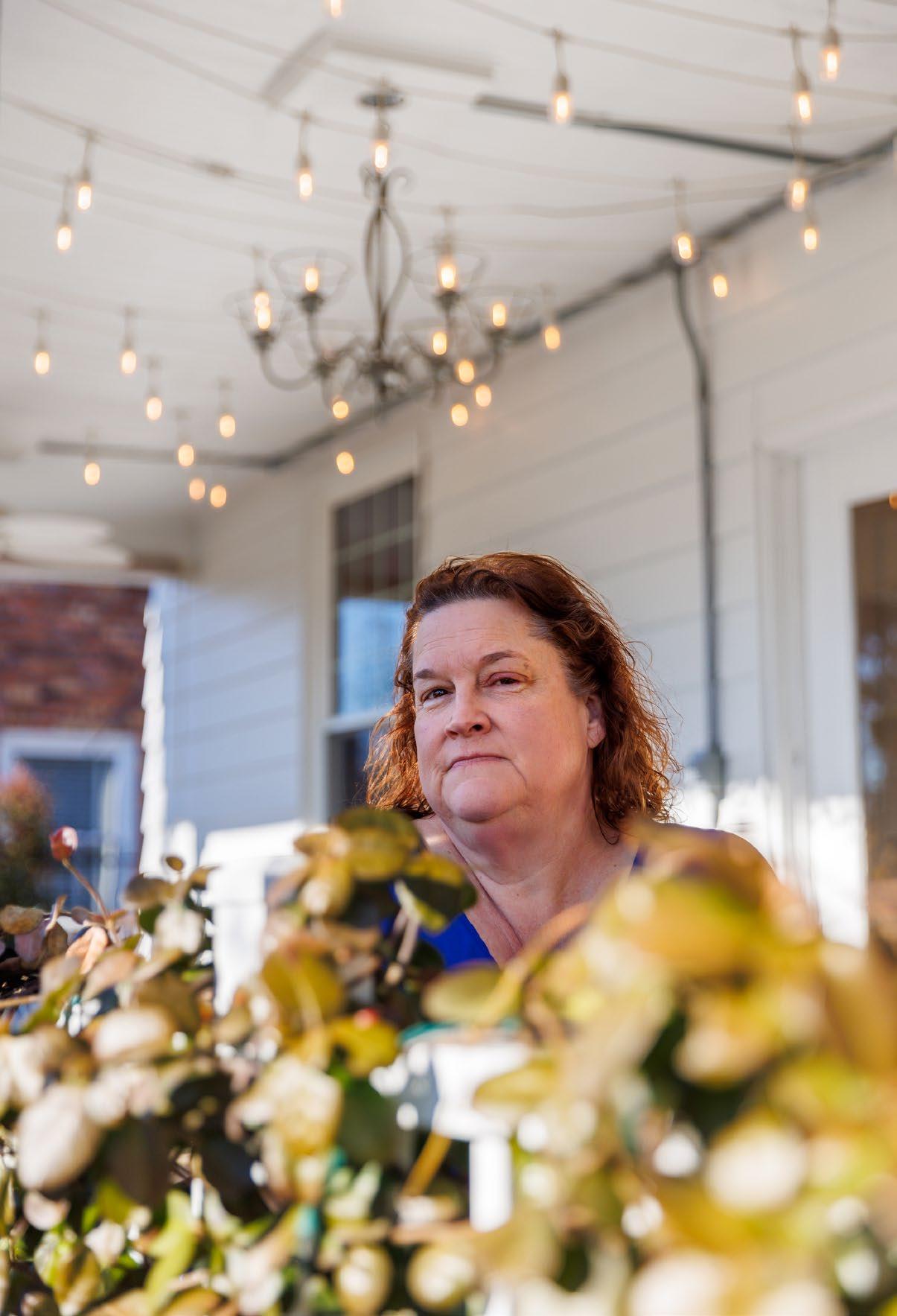
lot differently now.”
“You really realize what is important is family and health and that extra stuff, that rotten fruit, will take care of itself,” Bemesderfer. “Women tend to not slow down enough. We take care of everyone else — our husbands, our children, our friends. We have to take care of ourselves, too.”
The Cape Fear Valley Heart & Vascular Center at Cape Fear Valley Medical Center is located at 1638 Owen Drive in Fayetteville. It is recognized as an IBM Watson Top 50 Heart Hospital and has joint commission certifications for chest pain and AMI (heart attacks), according to Ray.
Further information can be found at capefearvalley.com.
Jami McLaughlin is a freelance writer for CityView. She can be reached at jmclaughlin@ cityviewnc.com or at 910-391-4870.
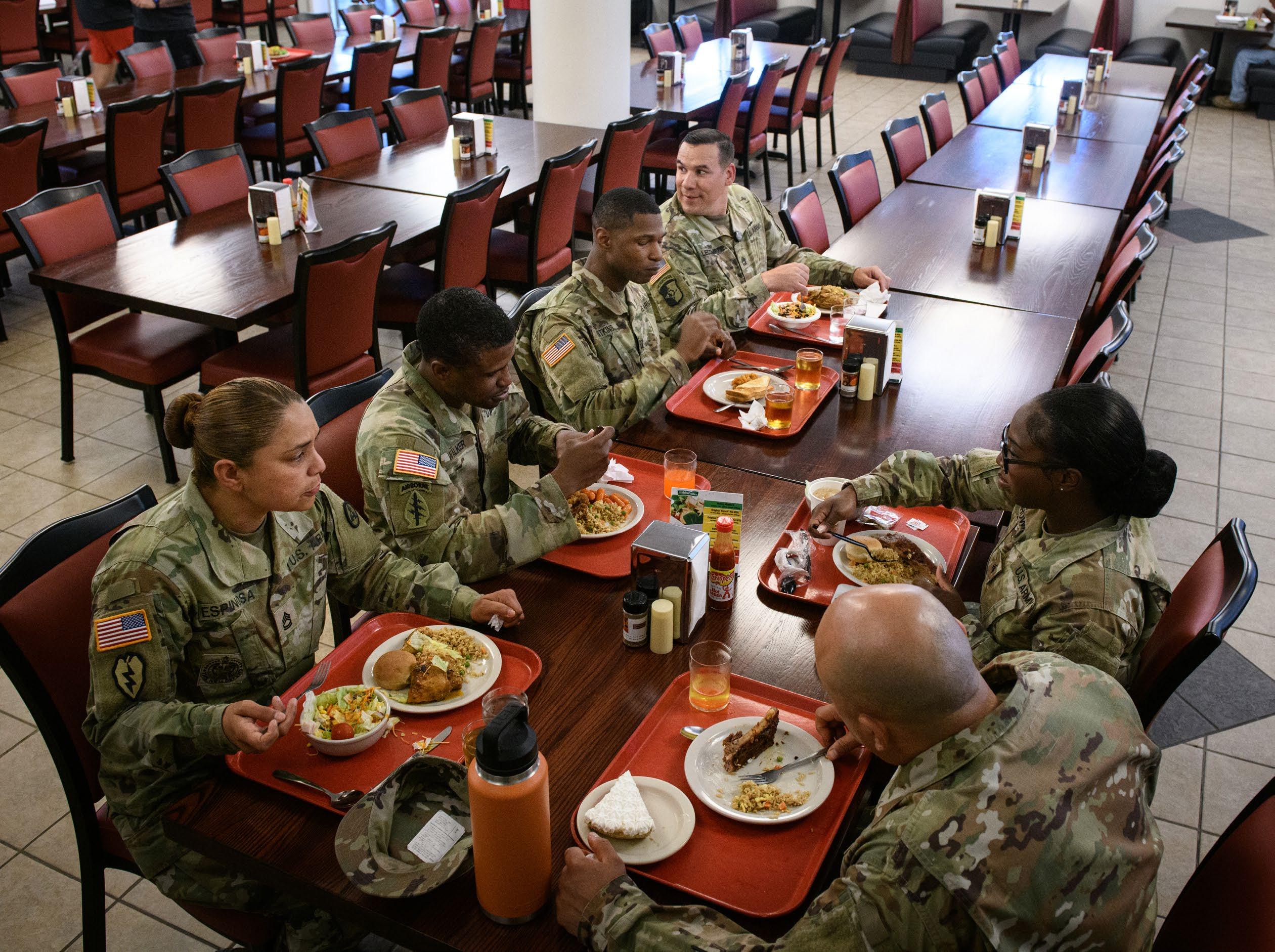
While leadership is already updating Spears Ready Warrior Restaurant, the Army is looking for a private contractor to create and run a new campus-style dining facility
BY MORGAN CASEY | PHOTOGRAPHY BY ANDREW CRAFT
IIt’s lunchtime on Fort Liberty. At Spears Ready Warrior Restaurant — the Army-run dining facility, or DFAC, along Goldberg Street — an evergrowing line of uniformed soldiers stand behind a sign made of printer paper that reads “Wait Here.” They’re holding bright red dining trays.
“You can step forward,” says a food server from behind her station. In front of her is a selection of the day’s menu: pasta, cauliflower, mashed potatoes and peas.
About 600 soldiers pass through Spears Ready every day for breakfast, lunch and dinner. Fort Liberty’s seven DFACs feed over 5,000 soldiers daily. Many are soldiers with Essential Station Messing status — mainly single soldiers ranked E1 to E6 who live on post and whose paychecks automatically pay for meals.
How those soldiers are fed at two DFACs is about to be updated. Spears Ready and Victory Warrior Restaurant, a new dining facility to be built on Normandy Drive, will be getting campus-style upgrades thanks to Fort Liberty leadership and the Army’s efforts to modernize dining options.
“We realize we cannot continue to feed soldiers like we have in the past,” Col. Mary Ricks, director of public affairs for XVIII Airborne Corps, told CityView. “Fort Liberty leaders continue to look for ways to improve and transform the dining experience for soldiers.”
Starting this summer, Spears Ready will no longer be a DFAC. It will be a “bistro.”
Instead of the current rotating menu and staple sandwich, salad, fast-food and desert stations, Spears Ready will feature “actions stations,” said Chief Warrant Officer 4 Zachary Glather, a food service lead at Fort Liberty. Those stations will be geared around types of cuisine, including Asian and Tex-Mex. A “manager’s choice” station will feature soldier-recommended meals that come out of Fort Liberty’s monthly DFAC Council meetings.
“It will give us civilian food and

Grease, fat and oil – as well as wipes and other items – should never be poured or flushed down drains or toilets. They can block sewer lines and cause wastewater to back up. The overflow can damage our water supply, harm the environment and even cause costly damage to your home.
To Dispose of Grease:
• Let it cool, pour it into a disposable container and put it in the trash. Scan the QR code to request a free “Fat Trapper” (covered cooking grease collection containers) from PWC.
• Wipe grease from pans before you wash them.
• Never put meat or vegetable scraps down the drain, even if you have a garbage disposal. Throw them away or compost your vegetable scraps.
Visit FayPWC.com for more information.

Never Flush:
• Cigarette butts
• Dental floss and Q-tips®
• Hand or baby wipes – even if they’re labeled “flushable”!
• Diapers and feminine hygiene products
• Paper towels
• Medications or medical waste (syringes)
• Kitty litter
• Food wrappers
• Any plastic products

COMING IN MARCH
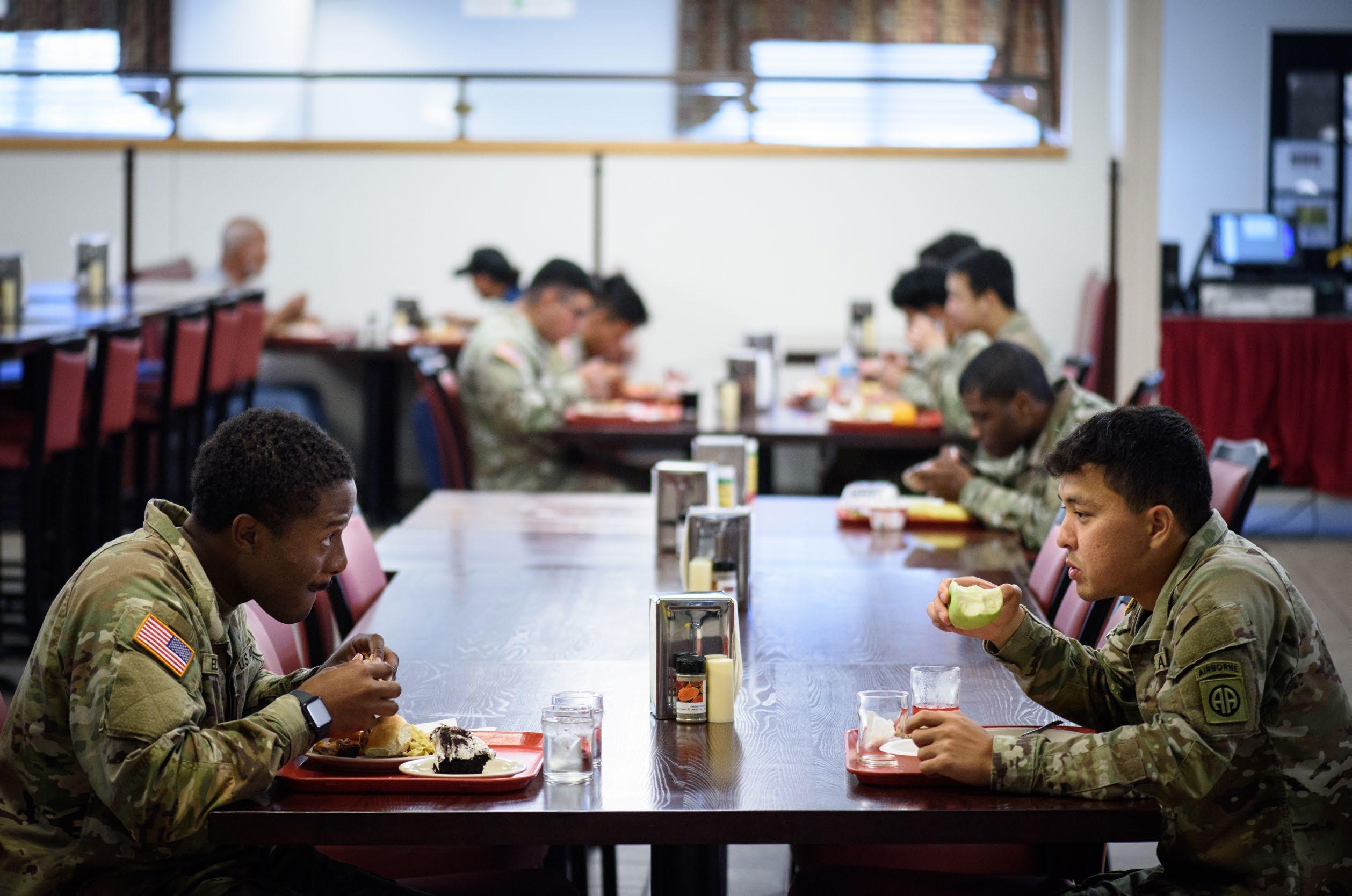
not military [food],” a male soldier eating lunch at Spears Ready told CityView when asked about the changes coming to the DFAC. “Even though we’re military, when you’re eating, when you’re dining in, you should be as relaxed as possible. So there should be as little military stuff as possible.”
Spears Ready’s culinary specialists will prepare the new food options mostly by individual plates rather than the current batch cooking system, like how it is in a restaurant, Glather explained.
Sergeant First Class Towanna Garcia, Spears Ready manager, recognizes that a DFAC isn’t the most enticing place to eat. She’s hoping Spears Ready’s incoming changes will make soldiers more willing to dine at the soon-to-be bistro.
“I’m excited to see how it’ll turn out,” Garcia said. “Because we have to catch up with the times.”
In addition to becoming a bistro, Spears Ready’s second dining room will be turned into a kiosk, the Army’s graband-go, gas station-like convenience store.
The updates have been two years in the making. But the time invested was worth it for Glather and his food service team, who have an opportunity to see their vision for the
future of soldier dining come to life.
“Soldier readiness starts here in the dining facility,” Glather said. “Because you can build a team eating a meal [together] and, with the nutrition we offer, it helps them with their training.”
Just over $1 million from the Joint Culinary Center of Excellence out of Fort Gregg-Adams in Virginia was approved for the Spears Ready revamp. A contractor has also been selected, Glather said. Soldiers can expect construction to begin in late spring.
The rest of the Army is catching up to Glather and his team’s vision for modernized dining facilities.
First reported by Task & Purpose, the Army released a request for proposals earlier this month for a private contractor to renovate five DFACs on installations across the country. The RFP asks the contractor to transform the DFACs into something similar to campus dining halls. The first will be a new facility on Fort Liberty called Victory Warrior Restaurant.
The selected contractor will be responsible for “providing 24/7 access to prepared healthy food based on

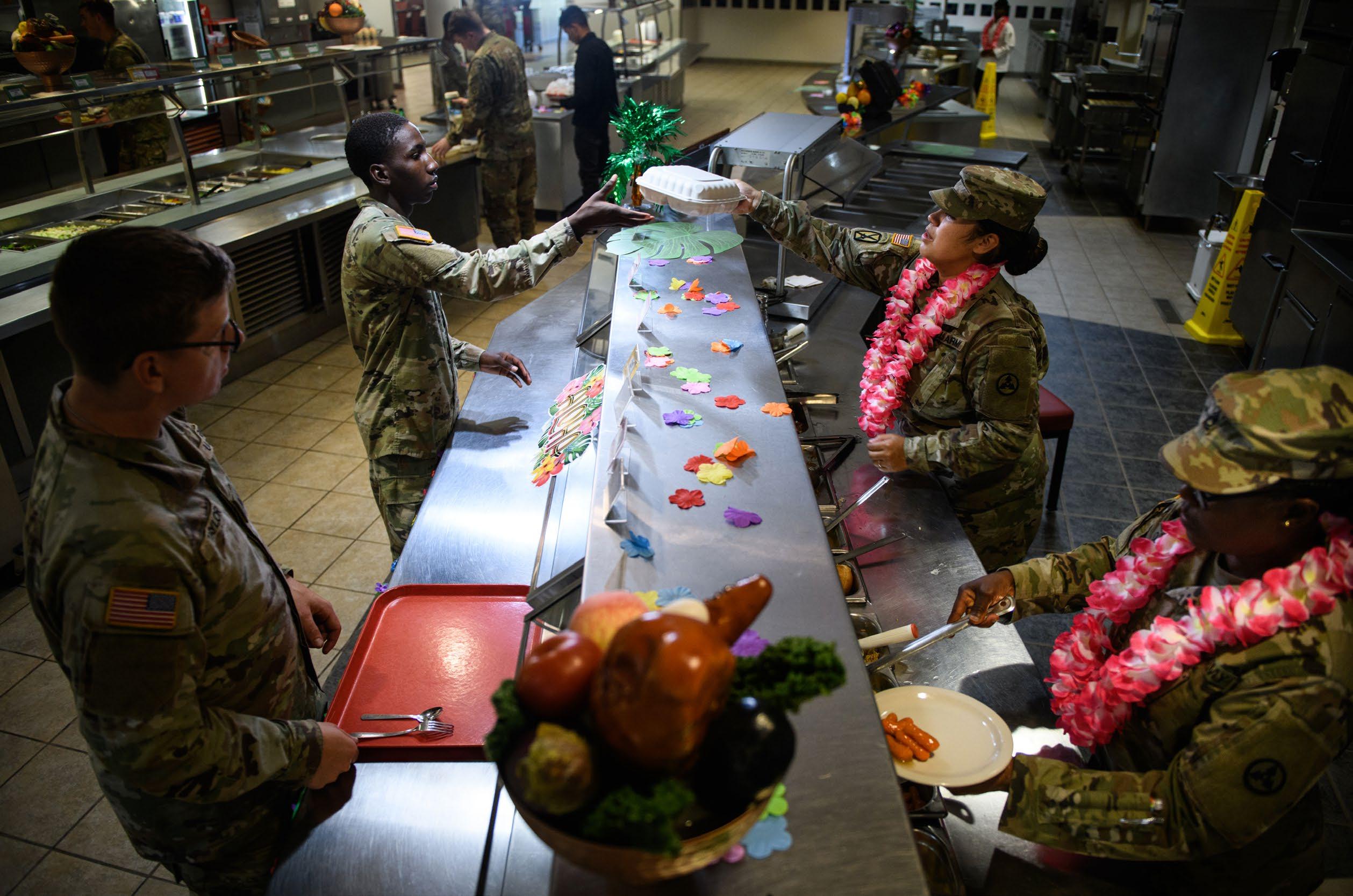
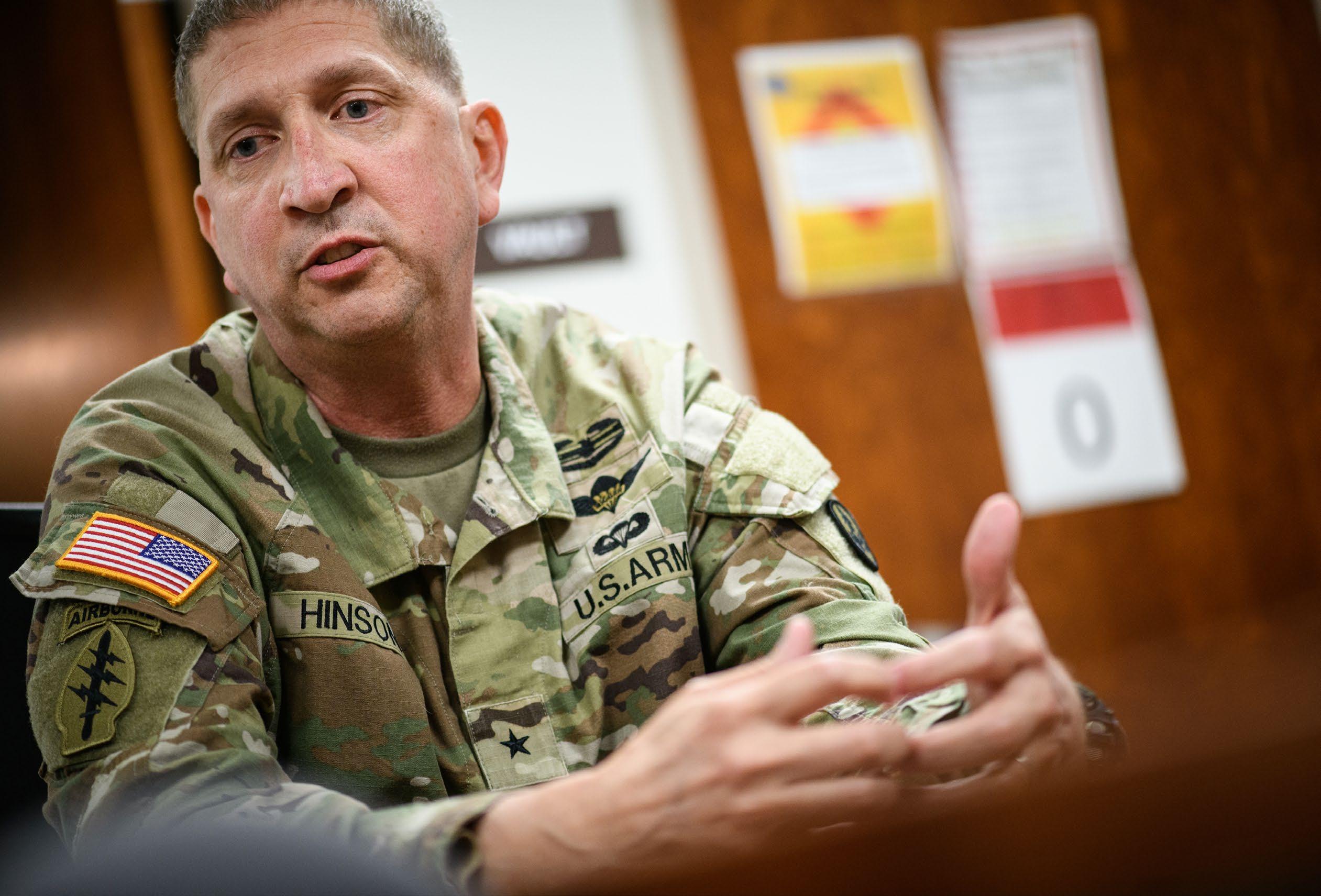
patron demand,” according to the RFP. The food can be served à la carte, in a dine-in setting or through meal prep options. The RFP even includes delivery, though Task & Purpose reported that the Army could not provide specific details on how the process would work or if delivery would be a final requirement.
The contractor’s revamped menu must accommodate a variety of dietary, religious and medical restrictions. Beer and wine can be sold at the contractor’s DFACs, though liquor isn’t permitted. Alcohol also is not permitted as part of a soldier’s meal.
“People might actually start eating in Warrior Restaurants again,” a male soldier told CityView when asked whether he’s excited about the RFP’s updates. “Because now we have a lot of people who are meal card holders who just never eat at a dining facility and they opt to go and spend their actual paycheck on food rather than eating the food that’s provided.”
The dining facilities selected to be privately operated will be run by a head chef certified by the American Culinary Federation or with an equivalent credential. Private civilian cooks will work at the facilities, instead of the culinary specialists currently cooking and serving
meals in DFACs across all installations.
However, since Victory is a new dining facility to be created by the contractor, none of Fort Liberty’s culinary specialists are at risk of being replaced by civilian cooks.
“We were fortunate enough where we picked a building on this base where it doesn’t impact our culinary specialists,” Glather said. “So, they’ll still be employed in their facilities and this campus-style dining venue from the RFP is just an addition to the food ecosystem on Fort Liberty.”
Glather said he hopes Victory could serve soldiers as soon as this summer. But that timeline could change depending on the contractor, he explained.
Contractors have until March 7 to submit a proposal to the Army to be the builder and operator of Victory and the other installations’ DFACs.
Nearly one in every three soldiers on Fort Liberty and their families have trouble accessing food, according to reporting from The Assembly Military OneSource, the U.S. Department of Defense’s service member and family support website, says some of
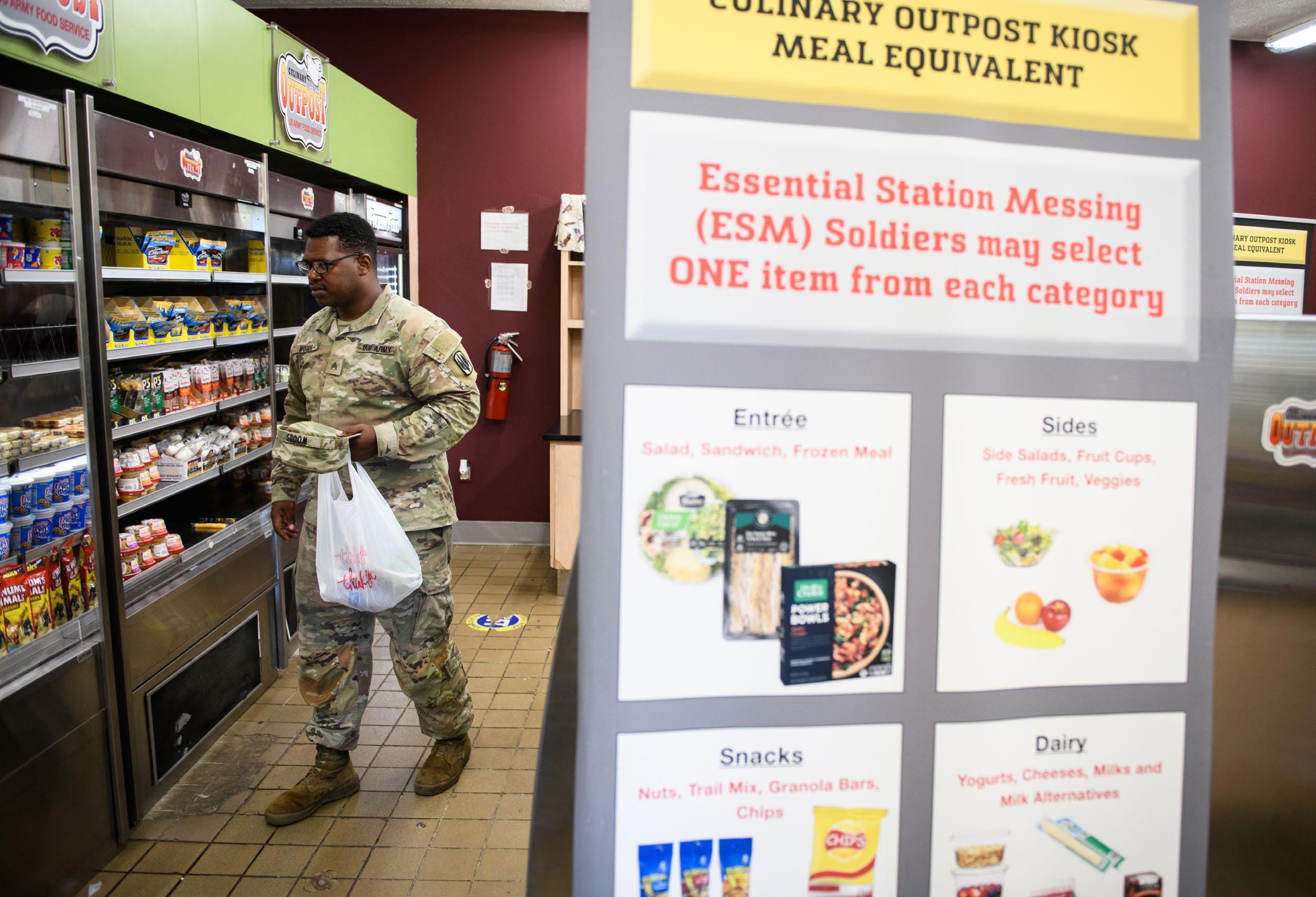
the service members most at risk of food insecurity are those lacking easy access to dining facilities.
Even if close to a dining facility, the facilities’ limited hours may prevent a soldier from accessing food. For example, DFAC meals are dished out within 90-minute windows, with breakfast served between 7:45 and 9:15 a.m., lunch set between 11:30 a.m. and 1 p.m. and dinner hours ending as early as 6:30 p.m. at Spears Ready.
The Army’s solution to limited dining hours was the kiosk, which provides name-brand, grab-and-go meals and snacks for soldiers throughout the day. The Culinary Outpost, Fort Liberty’s kiosk near Iron Mike Fitness Center, is open from 8 a.m. to 6 p.m. Monday through Friday. It sees between 350 and 400 soldiers pick up anything from a full meal to a quick snack to a latte each day.
“It works with our schedule,” XVIII Airborne Private Turner Jonathan told CityView while picking up his lunch at The Culinary Outpost. “We get to pick the food that best fits our needs and I think it’s a great selection of food. It’s another option from DFAC and it’s something the lower enlisted appreciate.”
Non-military entities are also trying to tackle food insecurity on Fort Liberty. Cumberland County
Department of Public Health established the Fort Liberty Women, Infant and Children clinic, which is dedicated to providing the federally funded supplemental nutrition program to military families on post. The clinic is located at the Joel Clinic on Logistics Street.
The county also created the Fort Liberty and Cumberland County Food Policy Council, the country’s first joint county-military food policy council. The council aims to decrease food insecurity and increase healthy food options on Fort Liberty and in the county.
CityView Reporter Morgan Casey is a corps member with Report for America, a national service program that places journalists into local newsrooms. Morgan’s reporting focuses on health care issues in and around Cumberland County and can be supported through the CityView News Fund.
Darrell T. Allison was both a non-academic and former school-choice lobbyist when he became chancellor of Fayetteville State University. Now enrollment is up, dropouts are down and new buildings are rising. Has he shown detractors he was the right person for the job?
STORY AND PHOTOGRAPHY BY PAUL WOOLVERTON
OOver the past year, CityView has deepened our partnership with The Assembly, a digital magazine that produces long-form journalism on North Carolina politics, higher education and culture. Because of this partnership, our reporters have published stories about Fayetteville's unique communities and challenges that have reached readers across the state. In this month's magazine, we're sharing a story originally published in September 2024 that follows Fayetteville State University Chancellor Darrell T. Allison and the changes brought about during his tenure.
The Sandhills summer put a sheen on the forehead of Fayetteville State University Chancellor Darrell T. Allison on an early July morning. Despite the stifling temperature and humidity, Allison kept his blazer buttoned as he shook hands and greeted construction workers, politicians, trustees and students.
They were gathering to celebrate a new dorm being built on East Campus. The final girder—painted Broncoblue rather than the dull gray of the other beams in the steel structure and signed by dozens of those in attendance—lay across wooden sawhorses, waiting for the crane to lift it into place four stories up.
The new residence hall is a prominent example of how Allison, 52, is changing FSU. The historically Black university was founded in 1867 and is the second-oldest school in the University of North Carolina system. This fall, it enrolled more than 7,100 students.
Most in the crowd clung to the shade from the Willis B. McLeod Hall next door as the ceremony got underway. But Allison remained in the sunlight, on the patchy scruff of grass and sandy soil in front of the steel framework of
the future residence hall.
“Well, good morning! Since you all braved the hot weather, I’ll stand—I’ll take the heat,” he told the crowd.
The crowd chuckled. “Get used to that!” a woman called out.
“Get used to that. I hear you,” Allison replied, smiling. “I hear you.”
If Allison isn’t used to taking heat by now, he should at least have a tolerance for it. Controversy has blanketed him since before he assumed office in March 2021.
At that time, critics dismissed him as a political appointee with no academic qualifications. They alleged he was chosen in a corrupted selection process and pushed ahead of better-qualified candidates.
More recently, faculty clashed with his administration over a proposed (and then canceled) cut to summer school pay and on plans to increase the professors’ teaching load. In May, an audit reported the FSU communications office had mishandled or misspent nearly $700,000.
As the fall 2024 semester got underway, some faculty questioned the growing number of highly compensated administrator positions and said their programs went under-supported.
But three-and-a-half years into his tenure at FSU, Allison has racked up evidence of success, including more than $210 million in capital improvements, gains in enrollment, retention and summer internships and a doubling of research grants.
Even if critics were right about Allison skipping the traditional process of vetting and choosing a chancellor, will the FSU community say he was ultimately the right choice?
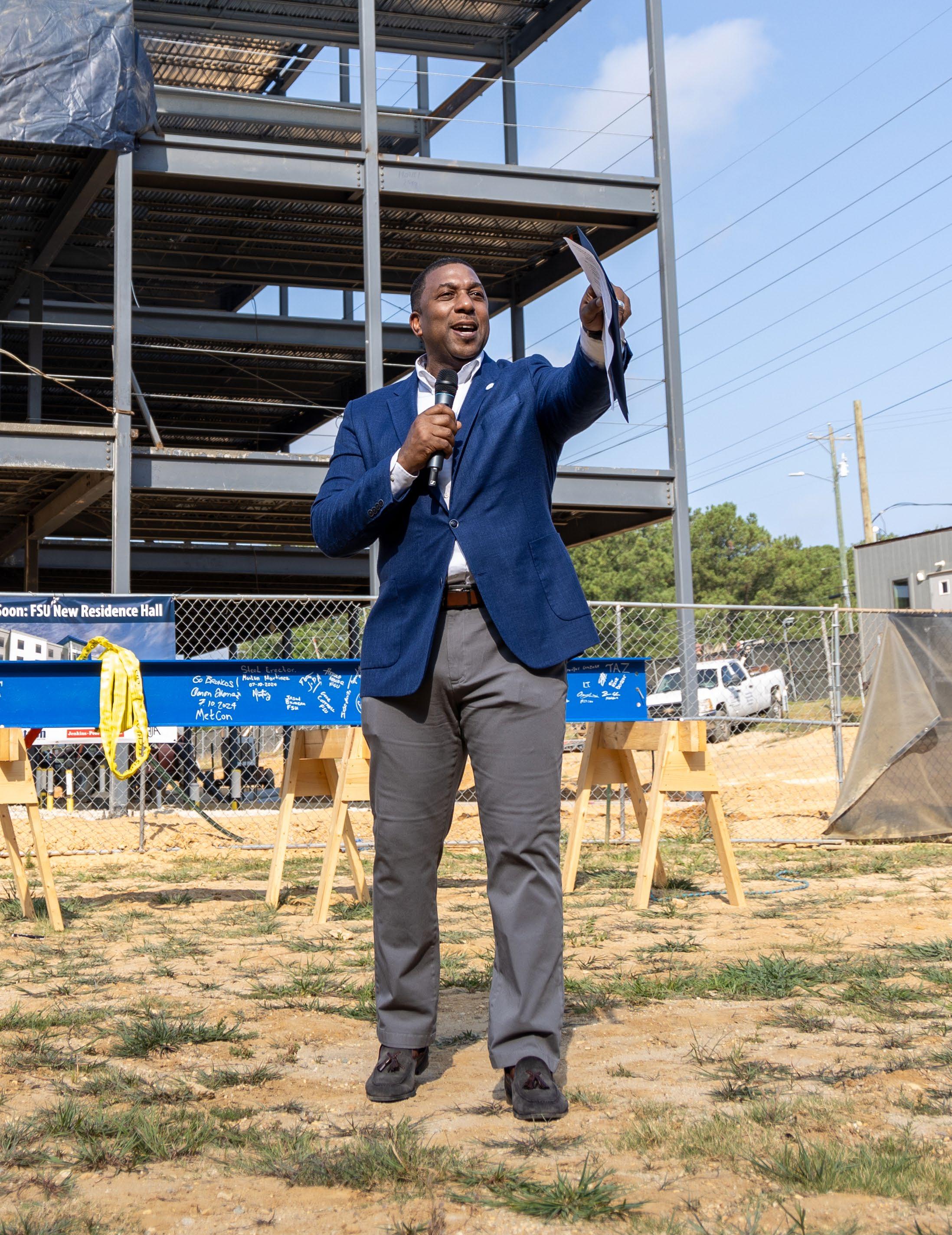
Fayetteville State University Chancellor Darrell T. Allison speaks during a topping out ceremony on July 10, 2024, to celebrate the construction of a $50 million residence hall that will house 338 students starting in August 2025.
“We’re witnessing progress here, on this campus here, at Fayetteville State University,” he said.
But most of all, Darrell is a friend-maker who can bring much-needed resources, both human and financial, to our university.
— Rep. Marvin Lucas and Dr. Algeania Warren Freeman
The first public hint that Allison would become the 12th chancellor surfaced in September 2020.
The previous chancellor, James Anderson, retired in 2019. A search for his replacement had already been underway for over a year when Allison suddenly resigned from the UNC Board of Governors with three years left in his term.
T. Greg Doucette, a prominent gadfly of UNC-Chapel Hill and the UNC System, publicly predicted that Allison would be appointed chancellor of one of the system’s five HBCUs, specifically noting the vacancy at Fayetteville State.
Doucette suggested an appointment would be Allison’s reward for participating in the system’s controversial attempt to pay $2.5 million to the Sons of Confederate Veterans organization to take “Silent Sam,” the Confederate statue protestors toppled in 2018.
Allison denied the two had anything to do with each other: “There was no such connection whatsoever.”
Allison’s detractors pointed out that his mother-in-law, Brenda Timberlake, served on the Fayetteville State Board of Trustees but resigned the day before the UNC Board of Governors voted to appoint him. Timberlake told The Fayetteville Observer she had no part in Allison’s hiring.
His appointment generated swift condemnation. A previous chancellor, Willis McLeod, questioned the selection process. The FSU Faculty Senate called for the Board of Governors to cancel the offer to hire him and both students and alumni marched in protest.
In April 2022, the American Association of University Professors issued a 37-page report asserting the Republican-controlled legislature had pushed UNC System leadership and campuses away from academic freedom and in favor of central control and ideological loyalty. The report portrayed Allison’s hiring at FSU as an example.
Still, prominent leaders stood behind Allison, including Democratic state Rep. Marvin Lucas of Spring Lake and Dr. Algeania Warren Freeman, former president at Wilberforce University, Livingstone College and Martin University.
“Darrell is one of us,” wrote Lucas and Freeman in a column in The Fayetteville Observer. “He is a product of a fellow HBCU institution. But most of all, Darrell is a friend-maker who can bring much-needed resources, both human and financial, to our university.”
Beyond the political questions, it’s easy to see why Allison’s critics were unhappy with his hiring. In the UNC system, a chancellor is the highest-ranked leader on campus, the equivalent of a president at other schools. Traditionally, that person has a background in higher education, with experience in the classroom, research, or as a university administrator.
Allison didn’t fit that mold. A lawyer by training, he’s never been a university administrator or even a college lecturer. After graduating from UNC Law School in 1999, Allison spent most of his career as a lobbyist in the K–12 school-choice movement, which advocates for charter schools, homeschooling and taxpayer-funded vouchers to defray the cost of private school tuition. In 2005, he was hired as the first president of Parents for Educational Freedom in North Carolina and in 2018 joined the American Federation for Children, a national schoolchoice advocacy organization.
Allison’s only higher education experience beyond serving on the Board of Governors came from serving on the Board of Trustees at North Carolina Central University from 2015 to 2017, where he’d earned his undergraduate degree.
While trustees and governors provide oversight, they aren’t involved in day-to-day operations of a campus. But across the country, the role of chancellors and presidents is being reshaped.
A 2018 study from Virginia Commonwealth University reported it was becoming common for people with nonacademic backgrounds to lead colleges and universities. They found that 40.5 percent of university presidents “have never held a tenure track eligible or tenured position in the academy.”
Other North Carolina colleges and universities are a part of this trend.
East Carolina University’s interim chancellor in 2019 was Dan Gerlach, the former head of the nonprofit Golden Leaf Foundation. Barber-Scotia College, near Charlotte, hired former Spring Lake mayor Chris Rey in 2023, who had served in the Army and the Army National Guard. UNCChapel Hill’s new chancellor, Lee Roberts, comes from the finance and investment world. (Both Roberts and Gerlach also were budget advisors to North Carolina governors.)
Chancellors were once expected to be academic leaders, said Holden Thorp, a Fayetteville native who served as UNC-Chapel Hill’s chancellor from 2008 to 2013. They were “someone who could speak for the faculty and speak for the academic objectives of the university in a way that draws from their own experience.”
In today’s climate, “it’s more a top-down bureaucracy,” said Thorp, from the UNC System president and Board of Governors to the 16 university campuses.
“There are people who believe that this is the most fair way to do this, so that the administration doesn’t become a voice that could be either in resonance or in opposition to other voices on the campus,” he said. “But I think you sap a lot of the moral authority of the university when you do that.”

Fayetteville State University Chancellor Darrell T. Allison on July 10, 2024, watches as a crane lowers the final steel beam into place during a topping out ceremony for a new residence hall under construction. The $50 million dorm is part of more than $210 million in construction and renovation underway on the campus.

In an email to CityView and The Assembly, UNC System President Peter Hans addressed challenges he saw at FSU, his rationale for picking Allison and thoughts on his performance so far.
Allison “was one of five forwarded to me by the FSU Board of Trustees,” Hans wrote. “I deliberated on all the candidates. I recommended Chancellor Allison because I knew he would be a new type of leader for Fayetteville State—someone who is dynamic and someone who would waste no time building partnerships, focusing on student success and reversing a long history of underinvestment in the institution.”
Hans said he wanted FSU’s new leader to boost enrollment, improve academic performance and form strong partnerships with Fort Liberty. Allison, he said, “has done all these things and Fayetteville State is stronger today because of it.”
Hans also described the school as in “dire need of capital improvements,” given that it is the second-oldest state-supported university in North Carolina and there has been historic underinvestment in HBCUs. The General Assembly made only eight allocations to Fayetteville State for capital projects between 1990 and 2020, totalling $36.4 million.
Since November 2021, the school has had more than $125 million earmarked for renovations and new construction.
“His staunch advocacy has helped win over legislators who have recognized the value of new and renovated facilities to serve students,” Hans wrote.
Hans took issues like faculty complaints in stride: “Sometimes leaders’ actions aren’t popular with certain constituencies, but that doesn’t mean that the decisions are without merit.”
The audit findings, he allowed, were distressing, disturbing and “simply unacceptable … But the chancellor took action to turn things around, implementing stronger financial controls, better monitoring and campuswide training for employees.”
Elmer Floyd, an FSU graduate and Democratic former state legislator, said he’d observed Allison in his previous role and found him to be an effective lobbyist who knew how to get support from key leaders. Both the personal and political connections Allison built at the General Assembly and the UNC System have become an asset for FSU.
Allison, he said, is “a person with a relationship in Raleigh that can deliver and bring resources to Fayetteville State. And that’s what Fayetteville State needed.”
If for nothing else, the Allison era will be known for its new and renovated buildings. The university has said projects underway or completed as of this year total more than $210 million.
The university’s ambitious 10-year campus master plan includes the new $50 million residence hall the university celebrated in July, a $12 million health and wellness center, a $10 million parking deck, $10 million in renovations for the H.L. Cook building, a new $69.3 million College of Education building and $55 million in other renovations.

Enrollment at Fayetteville State University set a record high of 7,107 students in fall 2024. The university plans to reach 8,000 in 2027. Credit: Johanna F. Still / The Assembly
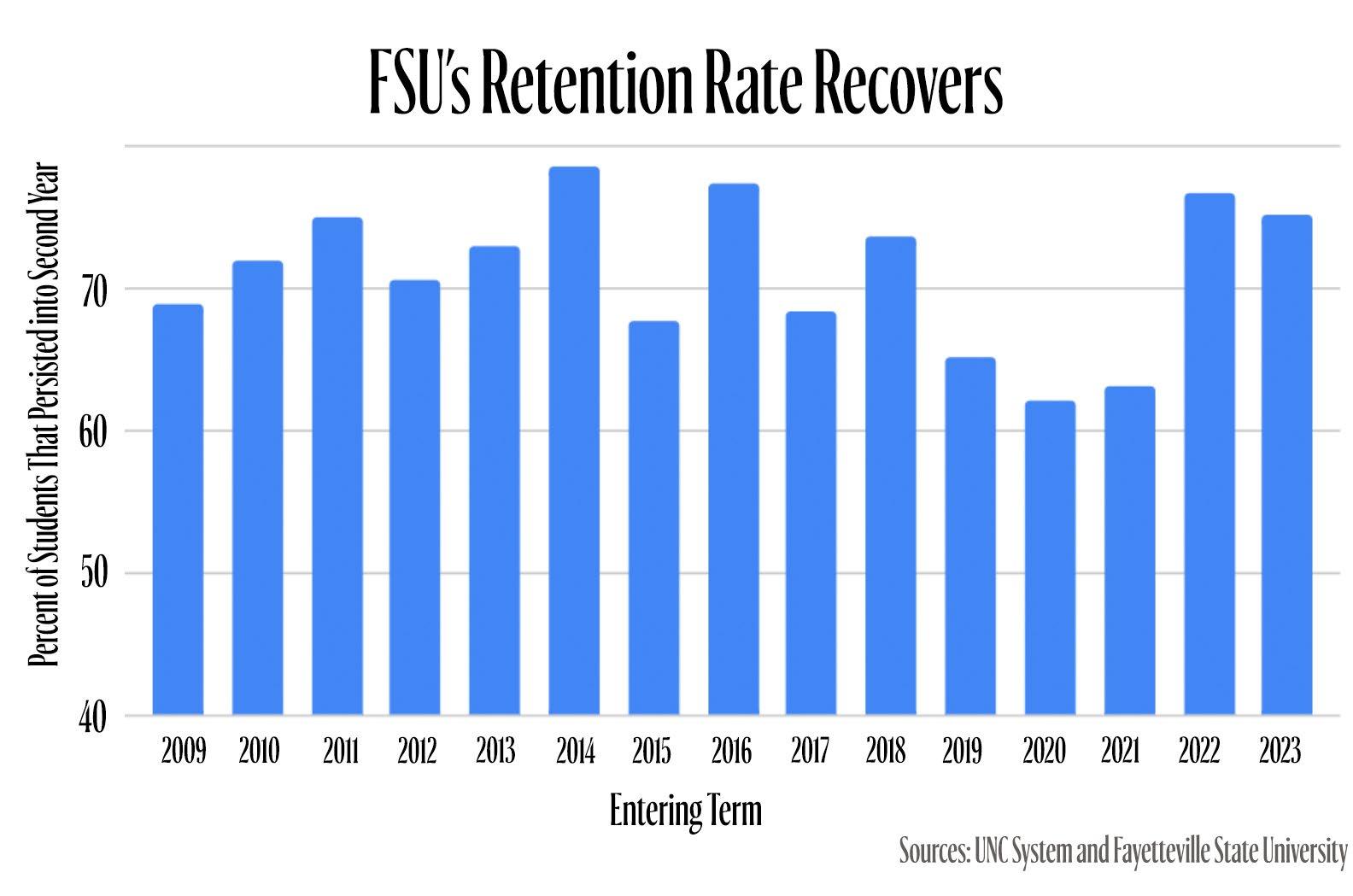
Percentage of Fayetteville State University students who continue to their sophomore year following their freshman year, 2009 to 2023. Credit: Johanna F. Still / The Assembly

FSU 10-Year Campus Master Plan 2023-2033
Shortly after Allison took office, he said, he asked the staff for statistics on the students’ academic performance. Year-to-year student retention rates and four-year graduation rates were far too low, he said.
“I didn’t know how much of a challenge it was until I saw that data report” in April after he arrived in March, he said. “I knew that we had to, that we were going to turn this ship. We were going to have to come up with something pretty innovative.”
The school has established and expanded a number of programs to enroll more students and prevent them from dropping out for financial reasons. That includes joining the N.C. Promise tuition program, which sets tuition at $500 per semester for in-state undergraduate students and beginning to offer free tuition to military-connected students. This semester, 2,288 students, or 32 percent of the total enrollment, are military-connected.
This year, FSU added 12 more community colleges to its Bronco Benefit transfer program, bringing the total to 16. Students in this program can transfer credits from their community college associate degrees to FSU to complete a bachelor’s.
The school also took on other hurdles to academic success. In 2021, it began offering free summer school to undergraduates to help them stay on track to graduate in four years—and summer enrollment reached a record high of 4,463 this year, the university announced in June. It said about half of them paid no tuition.
Data from the UNC System and FSU suggests that the programs are working. Total enrollment this fall semester is at a record high of 7,107, which is 5.7 percent above fall 2020.
FSU’s freshman-to-sophomore-year retention rate had been trending downward, then dropped significantly during the pandemic. It has rebounded since Allison took office; the number of freshmen who returned increased from 62.1 percent in fall 2021 to 75.2 percent this year.
Four-year graduation rates have also been a struggle. FSU’s rate for students who enrolled in fall 2017 and graduated in spring 2021 was 20.7 percent; the UNC System average was 51.9 percent.
This year will be the first test of Allison’s effect on four-year graduation rates, as the students who arrived in fall 2021 head into their senior year. He is optimistic. “I believe that in the years to come, we’re going to see some
real movement in the right direction,” he said. “We’re very laser-focused on systemic culture change.”
Allison also highlights the increase in research dollars flowing through the school. Grant money awarded to FSU has more than doubled, from $15.95 million in the 2021–22 academic year to $33.14 million last school year, according to a June presentation to the FSU Board of Trustees.
He told the professors at a town hall meeting in April that the school had been doing too little to support its research mission and needed to work harder to increase the “deep buckets of funds, so that our faculty, who are also researchers, who also have ingenious ideas, can have not only resources … but time to be able to do such research.”
‘Let me show you what I can do’
The faculty were slow to warm up to the new leadership.
Three and half years ago, the FSU Faculty Senate passed a resolution that said Allison shouldn’t be hired: 26 voted “aye,” three voted “nay,” and two abstained, according to records provided by Faculty Senate Chair Zahra Shekarkhar, an associate professor of criminal justice.
And some faculty interviewed this summer cited the negative state auditor report and ongoing dissatisfaction with campus administrators. Getting anyone to be critical on record for this article, however, proved difficult.
But this past spring when the Faculty Senate issued a no-confidence vote against Provost Monica Terrell Leach over concerns about teaching workload and summer school pay, the resolution notably did not include Allison. The chancellor responded to the vote by holding a town hall meeting with the faculty. A recording of the meeting indicates it was sometimes contentious, but Allison stayed and took their questions. He promised faculty would have more input on policy in the future. “I know we’ve got work to do,” Allison said. “OK? I promise you, I am sure, I am confident: We’re going to work all these things out.”
Allison has reached out to the professors in other ways, Shekarkhar said.
“I would personally like to thank Chancellor Allison for his commitment to enhancing the relationship with faculty, such as visiting our classrooms and meeting regularly with members of the Faculty Senate. These efforts are very much appreciated,” she wrote via text message.
Avis Hatcher-Puzzo, an associate professor of dance and theater who served on the chancellor search committee in 2020, said other candidates the committee interviewed focused on their background in higher education. That gave the faculty a certain level of comfort, she said.
But Allison spoke about something different: “Potential.”
Faculty were more skeptical of that. “It’s not like we weren’t hearing him,” she said. “It’s: We didn’t know how this was going to work.”
The pandemic was also still well underway and many faculty were just holding on by a thread, Hatcher-Puzzo
said. “And so you’re coming in with all this energy and possibility and we’re just—you know, it’s almost like, ‘Can we stay under the covers a little bit, ’cause we’re scared.’”
Allison asked the faculty to give him a chance, HatcherPuzzo said. Now they can see changes like construction, investments and grants. “I think he weathered the complaints,” she said. “And he was—I want to say ‘gracious,’ but I need another word—to go: ‘Hey, I know, I’m not what you’re used to, but let me show you what I can do.’”
In Hatcher-Puzzo’s department, that has included a $600,000 grant from the William R. Kenan Jr. Charitable Trust—more than she has seen in her entire previous 13 years on the campus.
“He sees outside of education what we need,” she said. “And again it’s not easy, because Fayetteville State is very unique.”
Associate Professor of History Rob Taber, an outspoken member of the Faculty Senate, said he had concerns in 2021 about Allison’s hiring process, but he kept an open mind about Allison himself. “I think Chancellor Allison has proved himself to be the right chancellor for FSU at this time,” he said.
Some people seek these positions for the title and quickly move on without accomplishing much, Taber said. He doesn’t see that in Allison.
“He’s done a lot to promote aspects of HBCU campus life as a chancellor, to provide a sense of community,” Taber said. That can be especially challenging at a commuterheavy campus with a growing online course component.
Last spring, nearly 47 percent of the students were adult learners.
Allison—a first-generation college student who has said his life was changed for the better by the opportunities and mentors he had at N.C. Central University—has striven to welcome and encourage them all, Taber said.
“He’s a different kind of chancellor—for sure—having not come from a traditional academic background,” Taber said. “But looking at his life arc, I think helps explain a lot of what he’s trying to do.”
Allison acknowledges he isn’t traditional. He cites FSU’s motto, Res Non Verba—Latin for “Deeds, not words”—and asks that people measure him and his staff and faculty by what they accomplish.
“We’ve had a lot of work to do,” he said. “I am one who believes that we need all hands on the plow, traditional or non-traditional, we need all.”
Senior reporter Paul Woolverton can be reached at 910-261-4710 and pwoolverton@ cityviewnc.com.
the first Black woman to serve on the
BY PAUL WOOLVERTON | PHOTOGRAPHY BY ROGER WINSTEAD/NCAOC
AA portrait of former North Carolina Associate Justice Pat Timmons-Goodson of Fayetteville will be displayed in the corridors of the North Carolina Supreme Court building in Raleigh, where she sat on the state’s high court bench from 2006 to 2012. The painting was unveiled in a ceremony before the Supreme Court justices on Nov. 18 in the courtroom of the Supreme Court. Timmons-Goodson estimated about 140 people attended.
Timmons-Goodson, who was the first Black woman to serve on the state Supreme Court, is now the dean of the North Carolina Central University School of Law in Durham. She still lives in Fayetteville, which has been her home since she moved here in the 1960s when her father, an Army soldier, was stationed at Fort Bragg (now Fort Liberty).
to paint her portrait. Wellner visited Timmons-Goodson’s home and made sketches and photographs of her, she said and then the painting process took about six months. Timmons-Goodson will donate the painting to the historical society.
“It was quite an experience,” Timmons-Goodson said. “She explained to me that there was indeed a difference between a portrait and a photograph. That a portrait, if it’s well done, should present the subject in such a way that the person viewing the portrait gets a feel, or at least believes that they understand the personality, something about the person.”
In the portrait, Timmons-Goodson is sitting in a wingback chair in her home, in her judicial robes. Her face portrays her age as it was during her time on the Supreme
Timmons-Goodson, who was the first Black woman to serve on the state Supreme Court, is now the dean of the North Carolina Central University School of Law in Durham.
She spoke with CityView in early January about the tradition, the symbols in her portrait and about the ceremony.
The North Carolina Supreme Court Historical Society, which promotes knowledge and history of the state’s judicial branch of government, seeks to have portraits of all the state’s Supreme Court justices made and placed in the court’s building, Timmons-Goodson said.
It can come about in different ways. Some former justices arrange this themselves, sometimes their law firms or former law clerks do it, she said.
Timmons-Goodson commissioned artist Robin Wellner
Court. She has a bold pink ascot. Behind her is a drum table with a vase of flowers.
The chair was a gift from a family friend, Mary Hannah, who helped Timmons-Goodson and her husband, Ernest Goodson, raise their children. The flowers and table are things that Timmons-Goodson keeps in her home.
The pink ascot symbolizes Timmons-Goodson’s college sorority, Alpha Kappa Alpha.
The ascot’s color also symbolizes her time on the Supreme Court, where the justices were assigned a particular color of construction paper to attach to the drafts of their written opinions, she said. This was so when printed copies of proposed court opinions were shared among the justices, the justices could identify at a
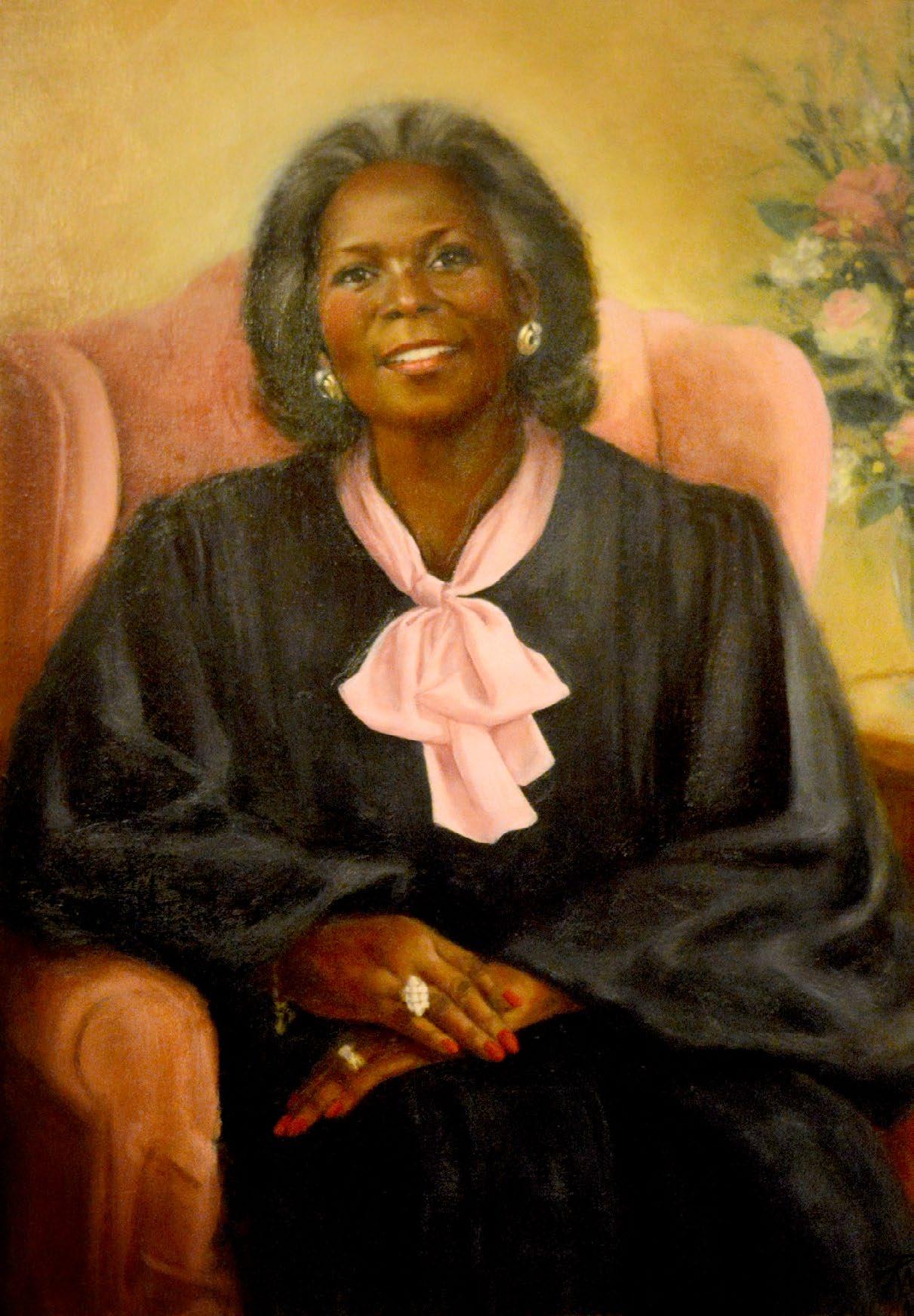
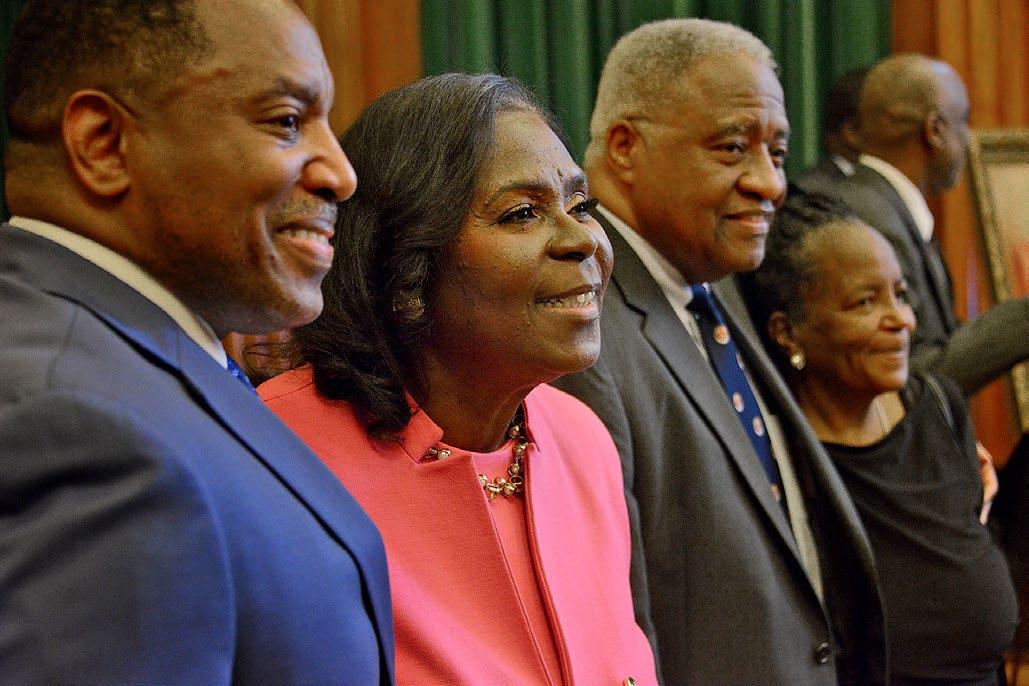
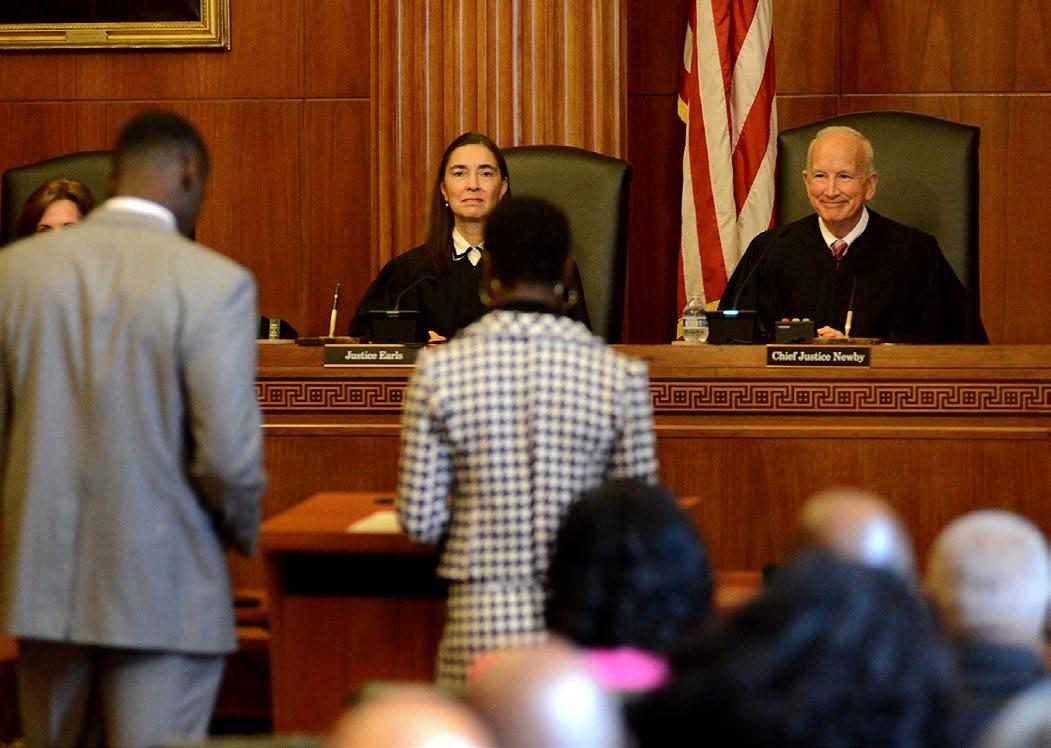
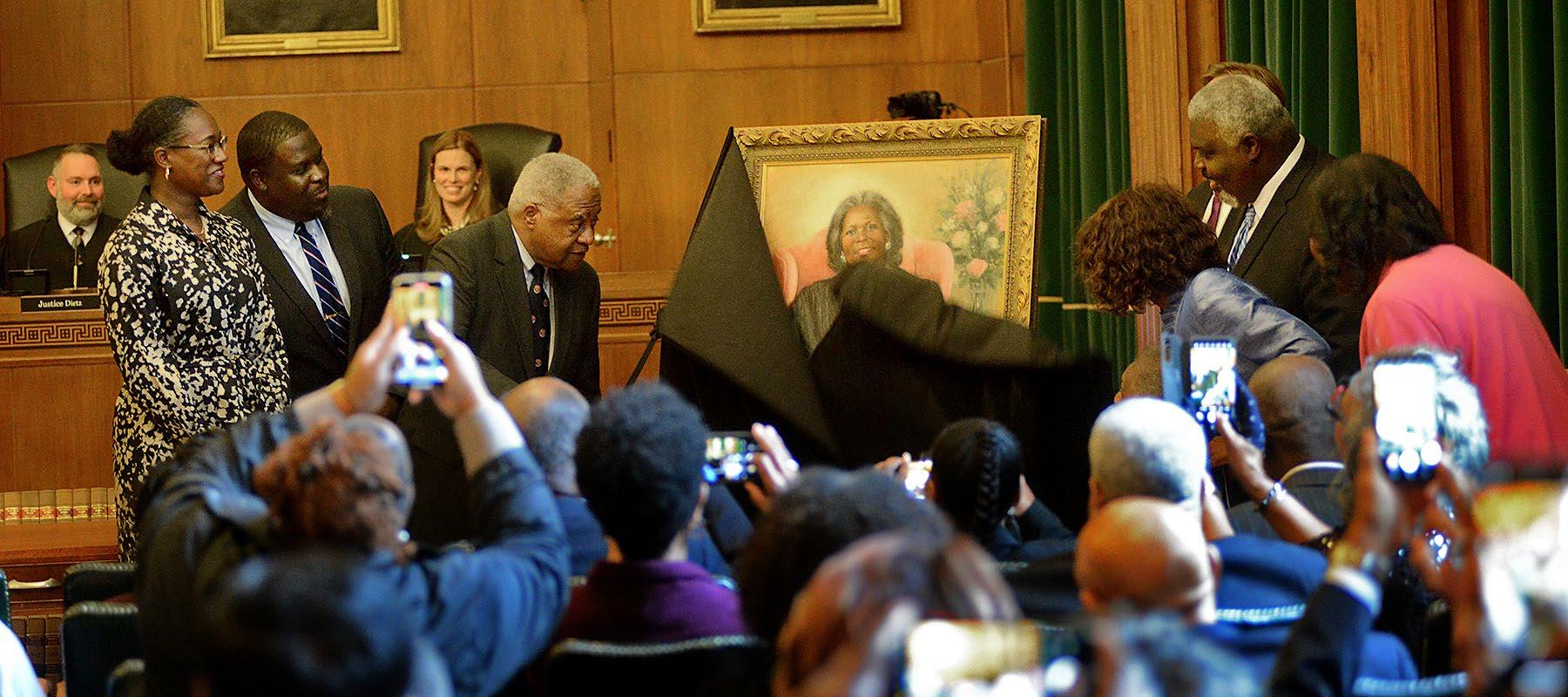
glance which of their brethren wrote each document.
Timmons-Goodson’s opinions were marked with pink construction paper.
Timmons-Goodson’s mother, Beulah Tindal Timmons, turned 90 in the fall and is having health issues and Timmons-Goodson arranged for the unveiling ceremony to be held while her mother could still attend. Some special moments from the ceremony:
• Timmons-Goodson was the first member of her family to become a lawyer. She said that wouldn’t be possible without the efforts of African-American soldiers, like her father Edward Timmons (who died in 1975), who served their country despite segregation. The widow of a soldier who served with her father and the wife of another attended. These men supported TimmonsGoodson as a child and “I was able to serve because they served,” she said.
• Her nephew and niece, Samuel Timmons and Alicia Dawson, who plan to become lawyers, addressed the court. “And what they essentially said was, ‘Aunt Pat was the first in our family to become a lawyer. But she won’t be the last.’” Samuel Timmons is attending Harvard and Dawson said she plans to go.
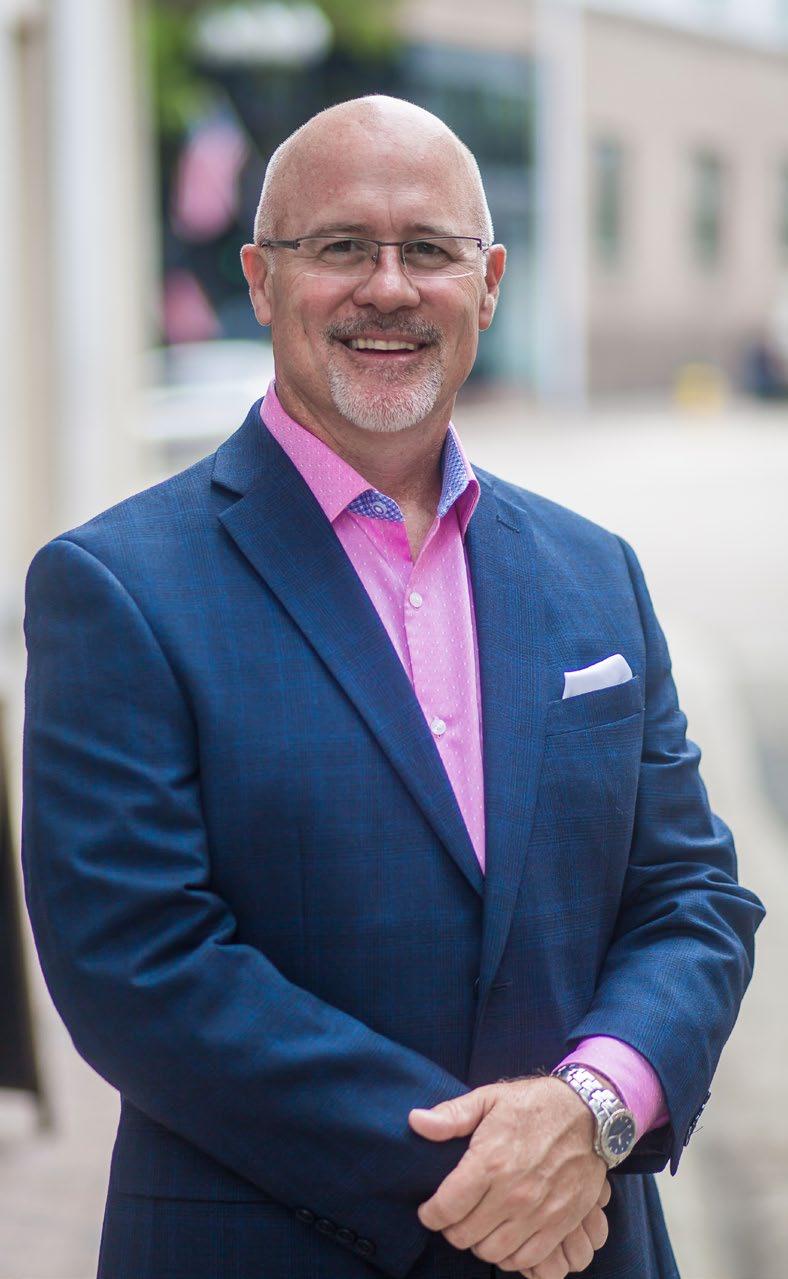
At least three other North Carolina Supreme Court justices have come from Cumberland County over the centuries.
Former Chief Justice Cheri Beasley was on the high court from 2013 to 2020. Her painting has not been done yet, court spokesman Roger Winstead told CityView. Beasley began her legal career in Fayetteville.
Former Associate Justice Ed Brady first came to Fayetteville as a soldier and later returned as a lawyer. He was on the Supreme Court from 2003 through 2010 and then returned to private practice. North Carolina Court of Appeals Judge John Tyson of Fayetteville said he has contacted Brady’s former clerks to arrange to get Brady’s portrait painted.
James Cameron MacRae, who was born and raised in Fayetteville, was a justice for several years in the late 1800s.
Senior reporter Paul Woolverton can be reached at 910-261-4710 and pwoolverton@cityviewnc.com.
Five Star Entertainment owner Mark Pezzella is well known in the community for his and his team’s ability to bring the “wow” factor to special events. He is a military veteran originally from Virginia Beach, Virginia, who decided to make Fayetteville his home after his Army service.
As the owner of the largest and most successful entertainment company in the area, he prides himself on his ability to give back to nonprofit organizations and is passionate about helping plan and coordinate nonprofit events. Pezzella has succeeded in sustaining his nationally award-winning company for over 30 years by being innovative, reliable and exceeding customer expectations.
Five Star Entertainment Inc. is an event production company that can handle every aspect of a large or small function. Among the services offered are DJs, dynamic room lighting, photo booths, dance floors, planning and event coordination. Contact Five Star Entertainment today to help create an outstanding and memorable event.

910-323-2409
2556 Mt Haven Lake Drive Fayetteville, NC 28306 www.FSENC.com






































































BY JAYLIN KREMER
























For those who love a good romance, rom-com or the fairy tale classics we’ve watched since childhood, it can be difficult not to look for or expect love like what you see on the screen. Love, in the movies, is demonstrated by grand gestures and over-the-top displays of affection that most never experience in real life. There is always some sort of life-ending drama and it seems all hope is lost, then BAM, a fairy tale ending.

I’m a sucker for these movies as much as the next person. I cry, laugh and remain pleasantly surprised when everything works out perfectly in the end, just like it always does. But when life doesn’t work out like the movies, because it never does, I’ll admit I can be a bit disappointed when my husband isn’t standing outside in the rain with a boom box declaring how much he loves me. But I love him anyway.

























My husband and I don’t have fairy-tale love. We have real-life love and as much as it’s not made for TV, I will say it is so much better.










Sometimes, I like a little more romance than my spouse. And instead of expecting him to know and read my mind, then be angry with him for not, I ask. I ask him to take me to a special dinner where I can dress up and feel pretty. He usually reminds me that I’m always pretty and don’t need to dress up to be beautiful, but he understands feeling beautiful means something different to me and we go.






I know he loves me, not because he’s smitten and can’t do anything but love me all the time. I know he loves me because in the 14 years we’ve been together we struggled, we argued and we got to the point where we couldn’t stand to look at each other for a little while. But we always choose to love each other anyway. What movies don’t tell you is that love is a choice. A choice you make day in and day out no matter what.







Some days it’s the easiest choice. You look at your spouse and think about how lucky you are to have them, how wonderful they are and you replay your greatest moments in your head.









He might find my need to get dressed up and go to a fancy dinner corny or unnecessary, but he loves me anyway. I might find the need to tell him what I want instead of magically finding myself at dinner because he planned it and prepared the entire evening in a grand gesture a pain, but I love him anyway.









Some days it’s the hardest choice. You look at your spouse and think of how angry they made you, all of the things they do wrong and how you want them to take you outside and give you the most passionate kiss in the rain while they remind you “if you’re a bird, then I’m a bird.” But they don’t.











Let your favorite romance movies be a guide of something you might like to incorporate in your relationship, or just something you watch and enjoy. Don’t let it be a reminder of what you don’t have in your relationship.













Your relationship is real and that one in the movie is not. Find ways to fall in love with your spouse over and over again because the feeling of falling in love is the closest we get in real life to those fairytale feelings.
For help with this, make sure you’re following CityView for some real-life tips and tricks.


Keep making the choice to love your spouse. Tell your spouse what makes you love them and what you need from them if you aren’t getting enough.


When it comes to the little things you don’t like, remember, we all have a thousand little things we don’t like, especially as the years go by.

But, love them anyway.

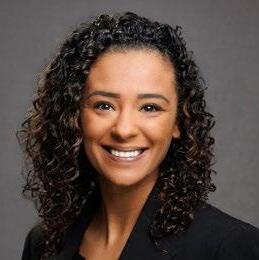













Jaylin Kremer, is a HomeFront columnist for CityView. She can be reached at jaykremer95@gmail.com.






BY DIANE PARFITT






Why do we all love “love stories”? In most cultures, people are looking for connections with others. We want a deep and lasting bond with another human being. Although most readers of romance novels are women, some men also enjoy the fantasy of a love story that almost always promises a happy ending. Isn’t that what we are all looking for — happily ever after?
For many, a romance novel presents a fantasy. While some prefer fantasy stories of space travel, magic and monsters, romance novels are the highestgrossing genre of fiction in the world today and not just in the United States. People around the world are looking for love in all the right places — in books.
With all the romance novels out there today, here are some of the latest and greatest for your enjoyment.
1. This Could Be Us by Kennedy Ryan
Soledad Barnes is the one who has everything organized and planned out. She is in charge of everything — the parties, the home, her family — until it all breaks down when she loses the man she thought she would spend the rest of her life with. Can she fix this? Can she survive this loss? Can she pick up the pieces, rediscover herself and trust a man again?
2. Lies and Weddings by Kevin Kwan
If you loved Kevin Kwan’s Crazy Rich Asians, you are going to be crazy about his newest love story. Well, it doesn’t start out as a love story. It’s all about a legendary, wealthy Chinese family that is about to be parted from their fortune. The matriarch has arranged for the daughter to marry into another rich Chinese family, but unbeknownst to her, they are also down on their financial luck. At the same time, she’s scheming to get her son to seduce another rich woman at the wedding for her money. The problem is, he’s really in love with the girl next door, the daughter of a humble doctor. Then the wedding is completely disrupted by a volcanic eruption. To further complicate matters, a hot mic discloses a secret tryst. Will all the family plans go up in flames? Will love win out over the quest for money?
3. The Wedding People by Alison Espach
When Phoebe Stone arrives at a Rhode Island hotel, the site of a lavish society wedding, everyone assumes she is one of the wedding guests. Her dreams of staying there with her husband are not meant to be and she has hit rock bottom. Sustained by the pain pills prescribed for her cat, Phoebe forges ahead hoping to have a grand time. To her surprise, the bride reaches out to her and the two form an immediate connection, leading to shared confessions. Told with tenderness and humor, we see how chance encounters can have lasting effects.
4. The Cinnamon Bun Book Store by Laurie Gilmore
Love in a bookstore? Why not! Bookstore manager Hazel is fast approaching her 30th birthday and she is a bit depressed about it. She never did anything very adventurous in her 20s, so when a secret message shows up between the pages of a book in the store, she decides to do something about it. But to follow the trail of clues she needs some help. Along comes Noah, a fisherman
and gorgeous hunk who is always up for an adventure (and secretly has a crush on Hazel). Together they set out to plan a scavenger hunt that throws them together as they pursue clues around town, at Dream Harbor and at the bookstore that sells freshly baked cinnamon buns.
5. Funny Story by Emily Henry
What better way to pull yourself up from a broken romance than to become roommates with your ex’s new girlfriend’s ex? Complicated? Yes! But Daphne finds herself stuck in her ex’s hometown with no friends, her dream job as a children’s librarian with barely enough to cover her bills and who better to understand her situation than her ex’s new girlfriend’s ex? They reluctantly decide to become roommates, just to save money of course. While avoiding one another, they become friends and even post misleading pictures of their adventures together — real or fantasy? You will just have to read the book to find out











6. The Paradise Problem by Christina Lauren
What could possibly go wrong when you marry for convenience? Once the need is fulfilled, you can get divorced, right? But then your ex shows up three years later, indicating you are still married. Anna marries Liam while in college for access to subsidized housing and when school is over, he moves out and they sign divorce papers. Then he shows up three years later because of a clause in his inheritance papers that states that he needs to prove he has been happily married for five years. The best-laid plans of mice and men … !
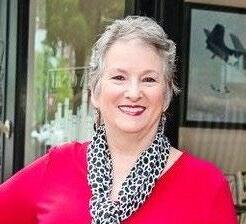
Diane Parfitt owns City Center Gallery & Books in downtown Fayetteville. She can be reached at citycentergallerybooks@gmail.com.
• Industry-focused certificates & credentials • Résumé assistance
• Mock interview opportunities designed to prepare you
enter the
Class Spotlight: CompTIA Security+ New Hybrid Class format!
• Next class begins March 10 & ends April 10 • Funding provided
Pass certification exams & earn college credit!
• Test vouchers included • No G.I. Bill • Limited seats
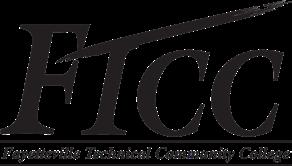



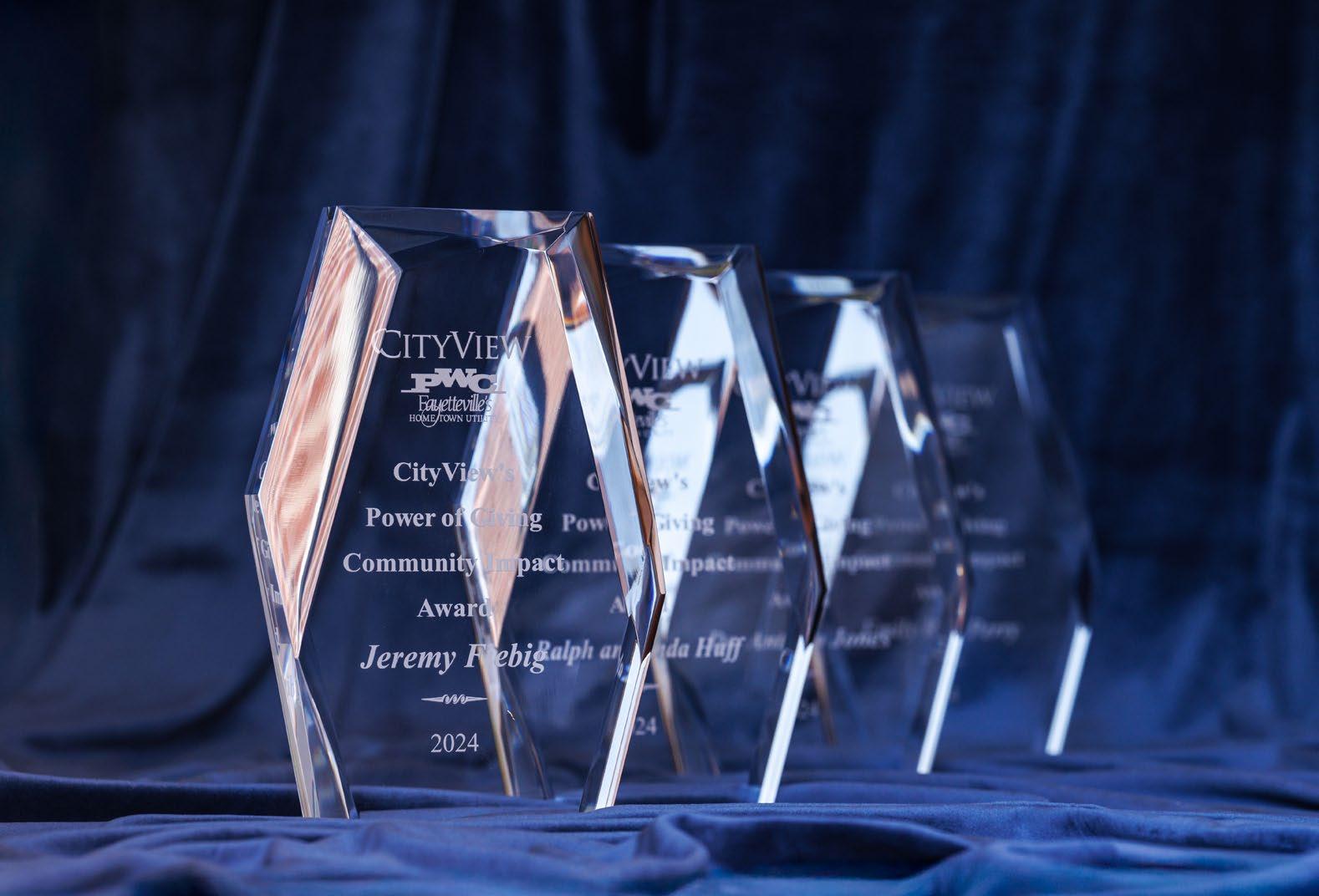
FEBRUARY 2025
Here are just some of the things happening in and around Fayetteville this month. Scan the code with your phone for more events, additional information and to post your event on our website. Events are subject to change. Check before attending.
Jan. 30–Feb. 23
Charlie and the Chocolate Factory
Cape Fear Regional Theatre 1707 Owen Drive cfrt.org
Feb. 1
Drop-In Tour: Garden in Winter
Cape Fear Botanical Garden 536 N. Eastern Blvd. capefearbg.org
Feb. 5
Park Ranger Chats — Aliens: Invasive Species in NC
Lake Rim Park 2214 Tar Kiln Drive fcpr.us
Feb. 7
Fayetteville Marksmen vs. Huntsville Havoc — Racing Night
Crown Coliseum
Crown Complex
1960 Coliseum Drive marksmenhockey.com
Feb. 8
Fayetteville Marksmen vs. Huntsville Havoc — Operation
Sellout $10 Tickets
Crown Coliseum
Crown Complex
1960 Coliseum Drive marksmenhockey.com
Feb. 11
CityView’s The Power of Giving Community Impact Awards presented by PWC
Segra Stadium
460 Hay St. cityviewnc.com
Feb. 14
Ladies R&B Kickback Concert
Part 2: Valentine’s Edition
Crown Complex Theatre
Crown Complex
1960 Coliseum Drive crowncomplexnc.com
Feb. 15
Lift Every Voice & Sing:
Love Songs
Cumberland Choral Arts
Holy Trinity Episcopal Church 1601 Raeford Road cumberlandchoralarts.org
Feb. 16
Matt Mathews: Boujee won a Budget
Crown Complex Theatre
Crown Complex
1960 Coliseum Drive crowncomplexnc.com
Feb. 21
Cumberland County Schools: Career-Con
Charlie Rose Agri-Expo Center
1960 Coliseum Drive ccs.k12.nc.us
Feb. 21–23
El’J Dilla Weekend Poetry-N-Motion Downtown Fayetteville facebook.com
Feb. 22
The New World: Reimagined Fayetteville Symphony Orchestra
Seabrook Auditorium
1200 Murchison Road fayettevillesymphony.org
Feb. 25
A March Concert In February! Fayetteville Symphony Orchestra
Huff Concert Hall
5400 Ramsey St. fayettevillesymphony.org
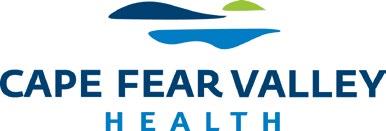










An Affair to Remember hosted its 2025 A Girl to Remember Runway Extravaganza Fashion Show on Saturday, Jan. 11, at The Crown Complex. This year’s fashion show featured designers JOVANI, Sherri Hill, Ashley Lauren and more. Photos by Sharilyn Wells
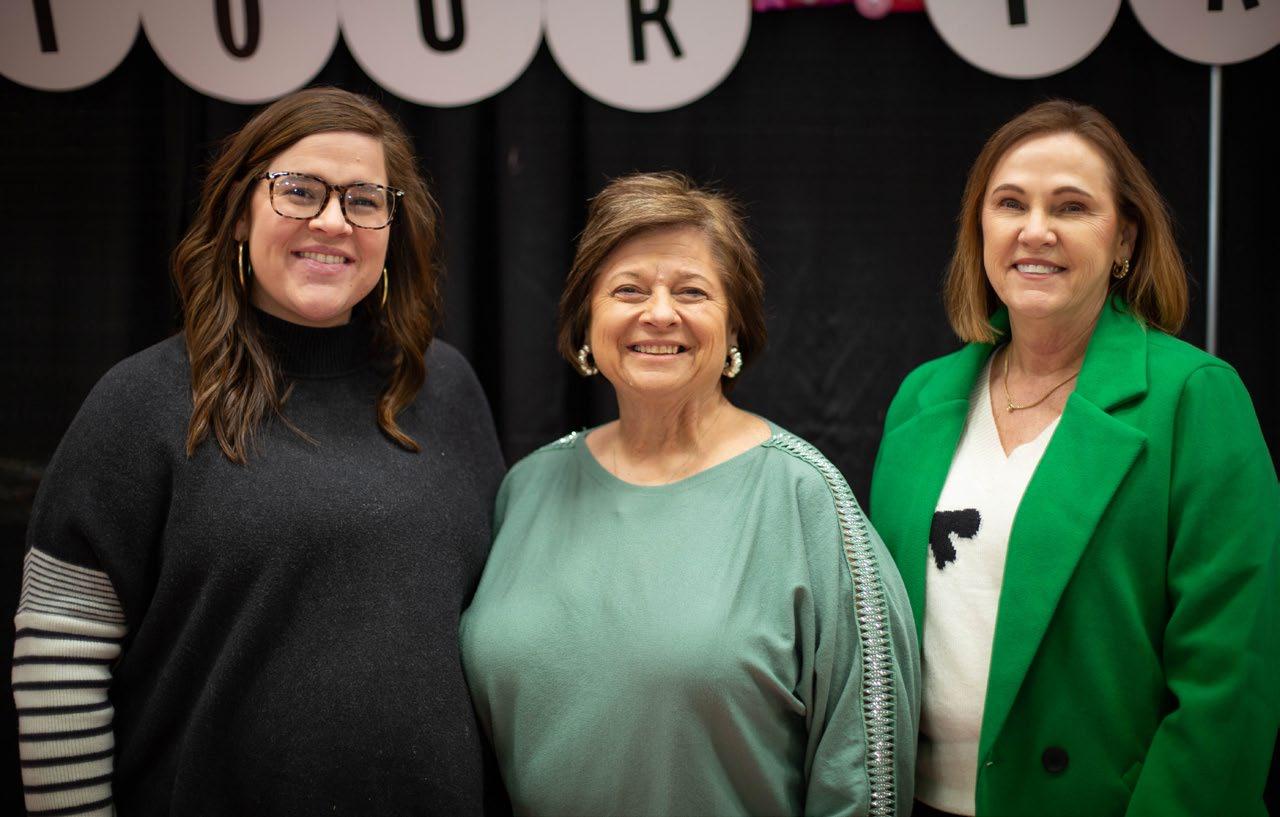
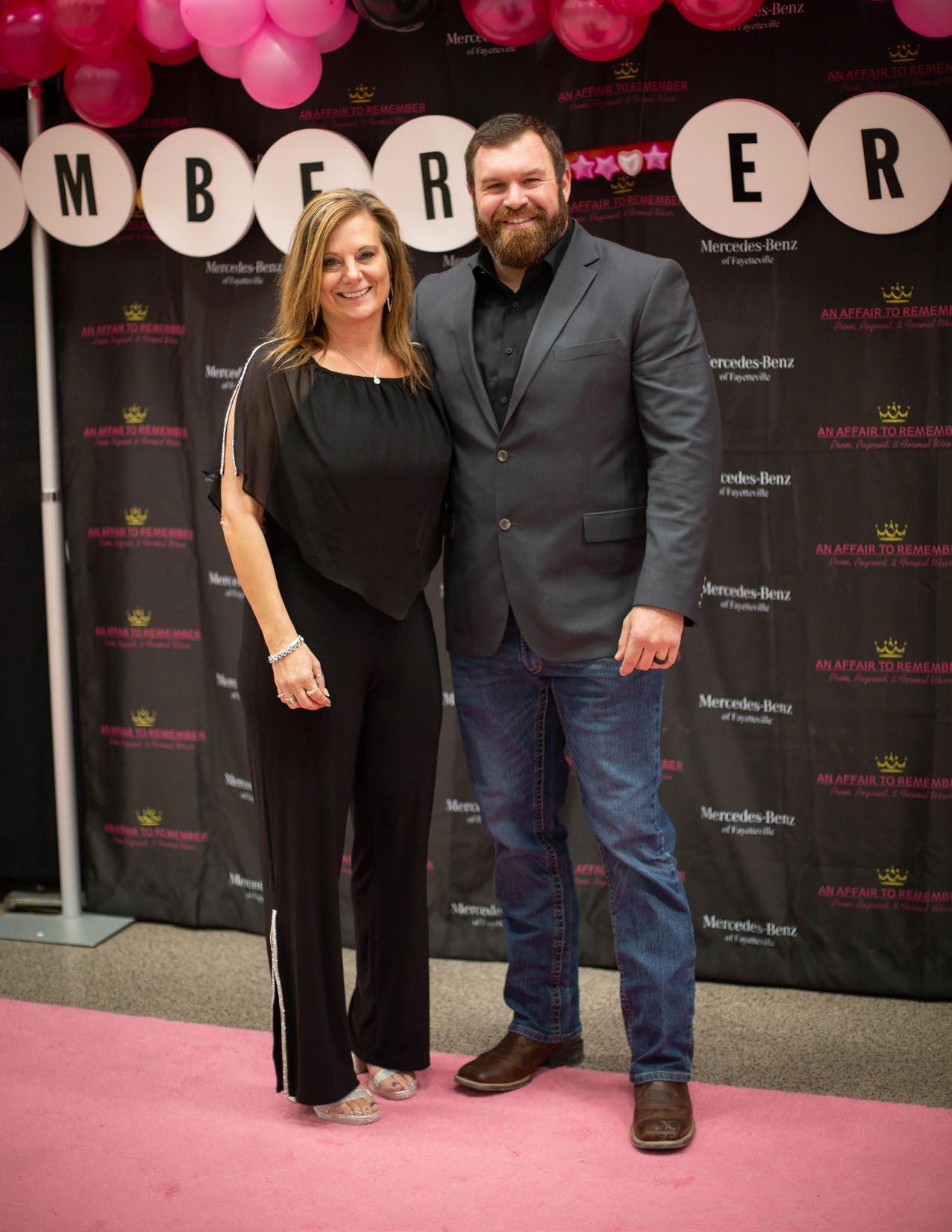
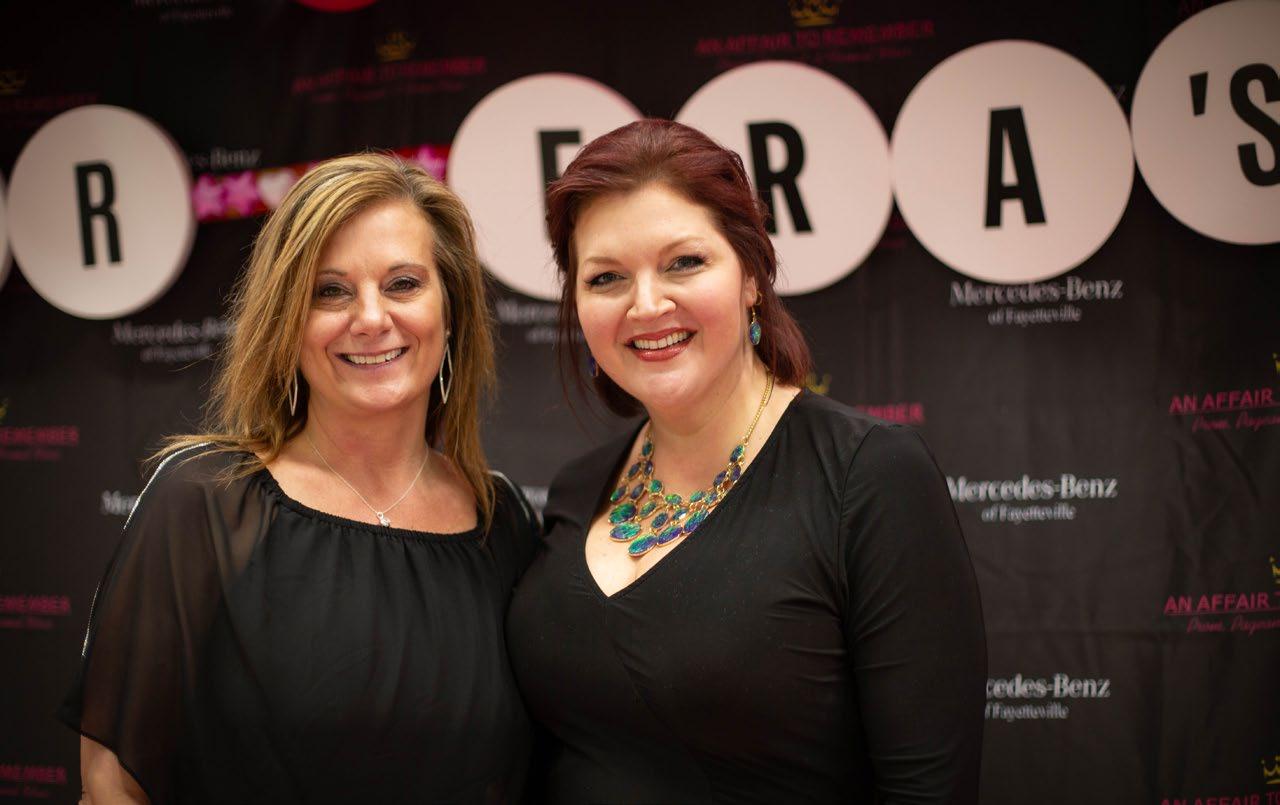

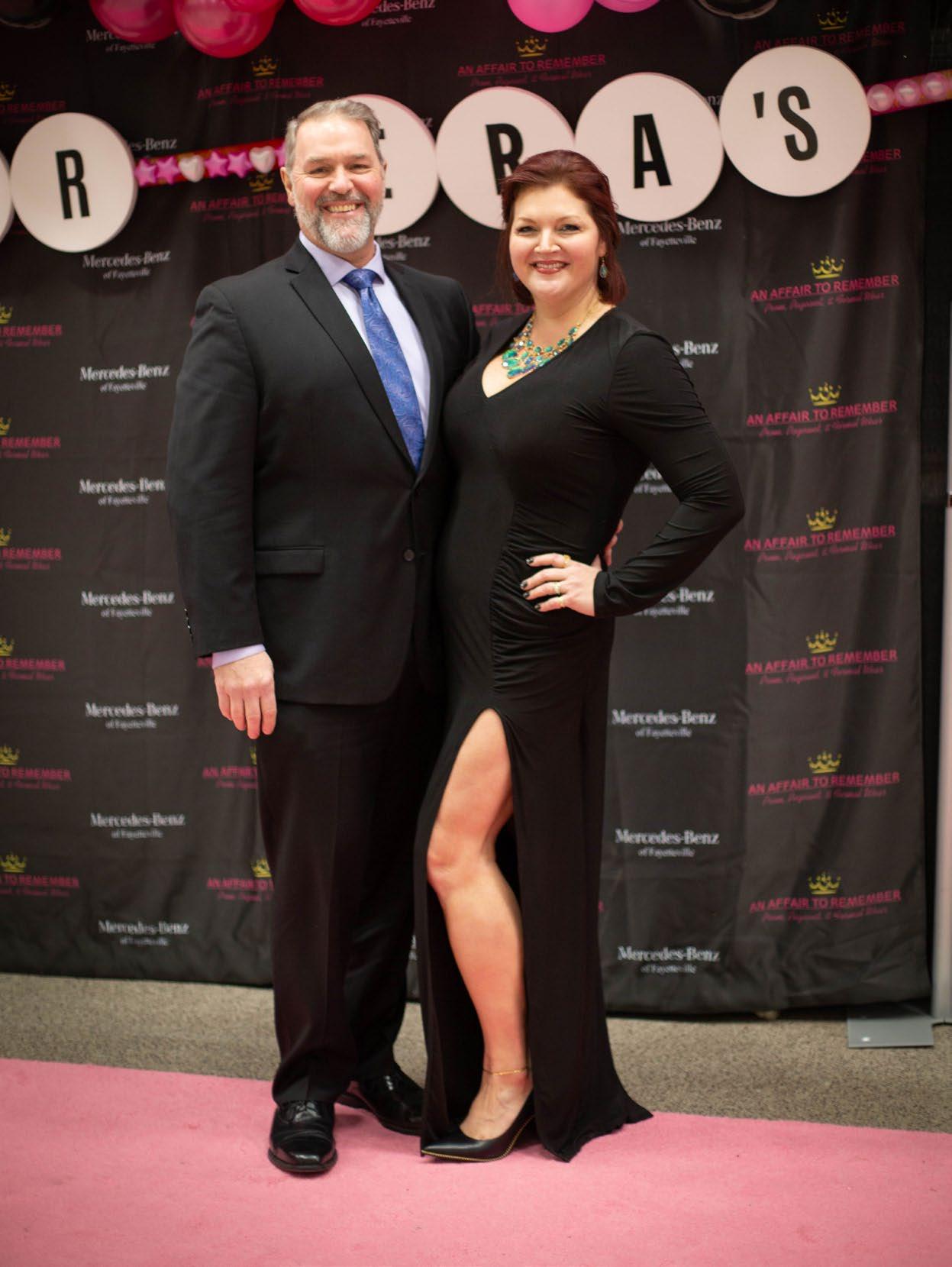


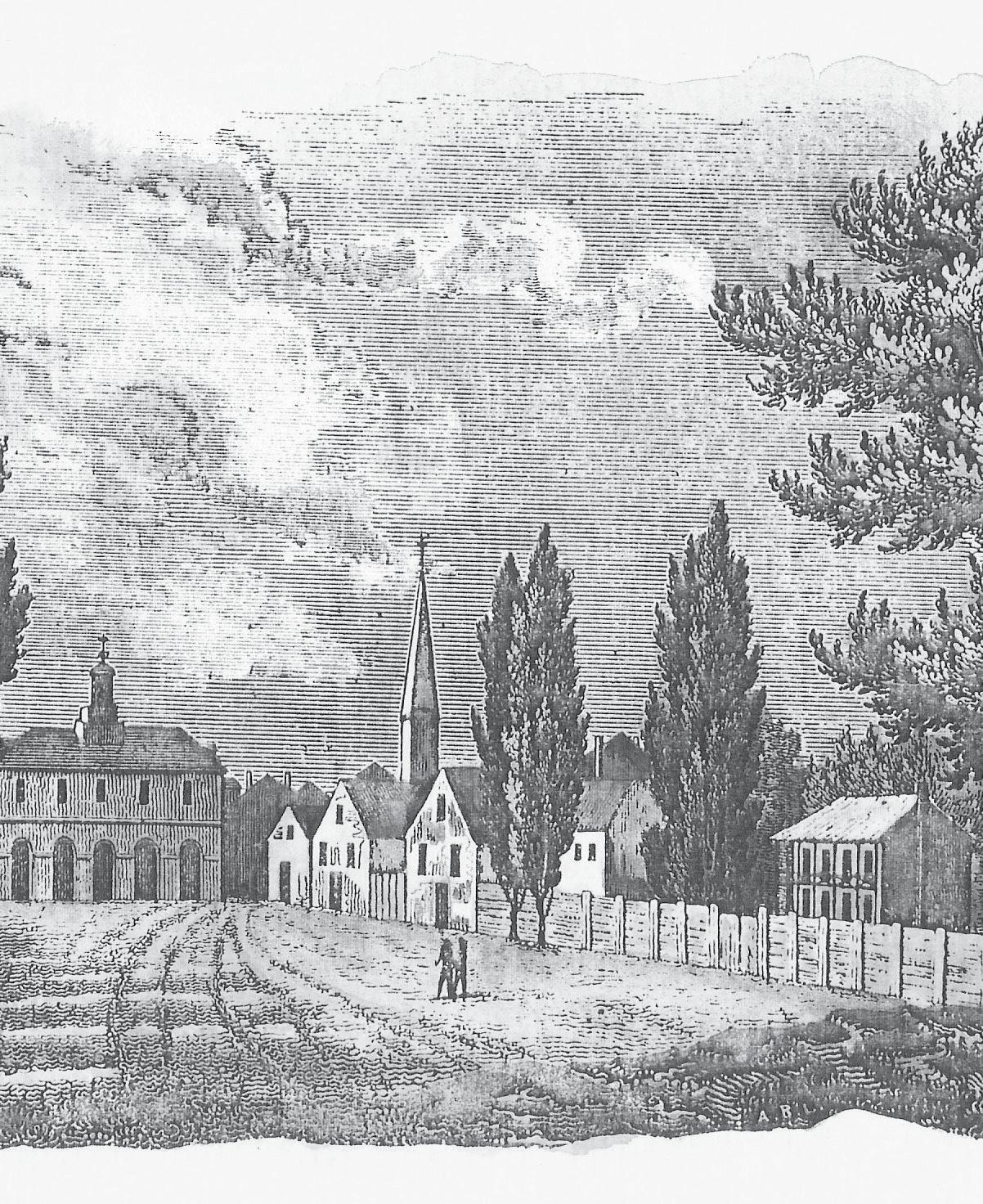
The 200th Anniversary of Lafayette’s Farewell Tour
Experience history – the procession, the ball, the dinner and toasts, and more!
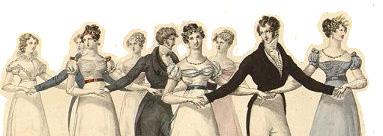

Presented by the Lafayette Society of Fayetteville and CityView and these major sponsors:
Cape Fear Valley Health System
City Center Gallery & Books
Coldwell Banker
Will Gillis
Gillie Revelle and other generous sponsors:
Fayetteville Cumberland County Economic
Development Corporation
Fayetteville State University
Fayetteville Technical Community College
International Minute Press
Drs. Gwenesta B and Kenneth Melton
Methodist University
Mark Hurley – Hurley Insurance Group
Olde Fayetteville Insurance and Financial Services
Rick Suehr
Up & Coming Weekly
Village Green Properties

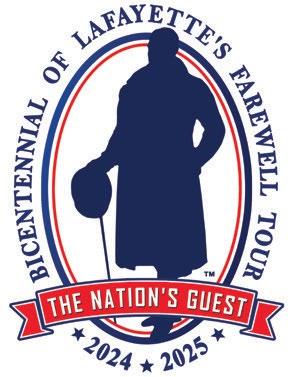

Regency Dance workshops: Thurs Feb 20 6-8:00pm Sun Feb 23, 3-5:30pm Sat Mar 1, 3-5:30pm Register at www.lafayettesociety.org or with QR code
As the last of the American a symbol Equality wanted his Farewell estimated Americans
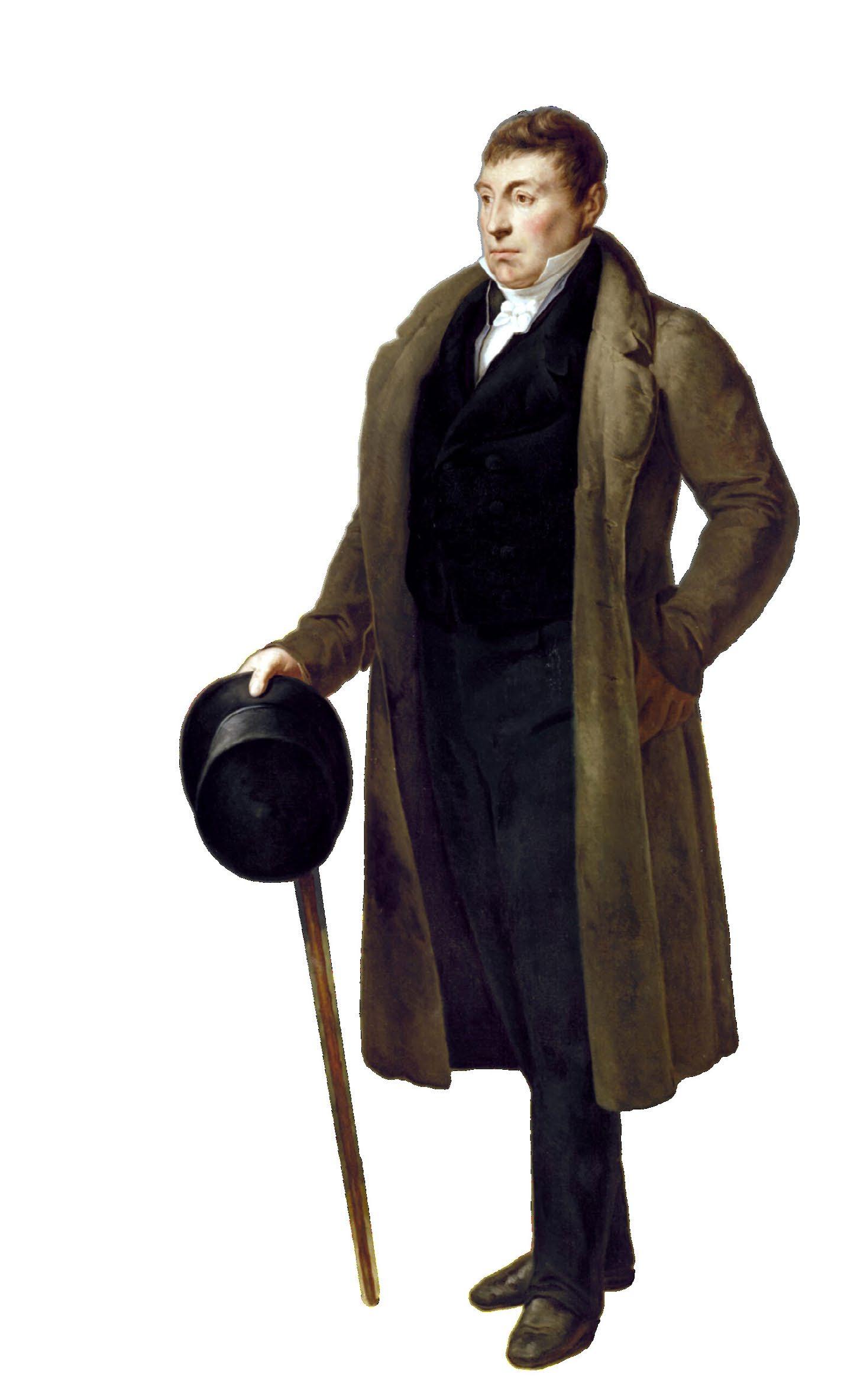
Plan to attend the ball on March 4 and the dinner on March 5 at the elegant Cape Fear Botanical Garden. Tickets at www.lafayettesociety.org or use the QR code.
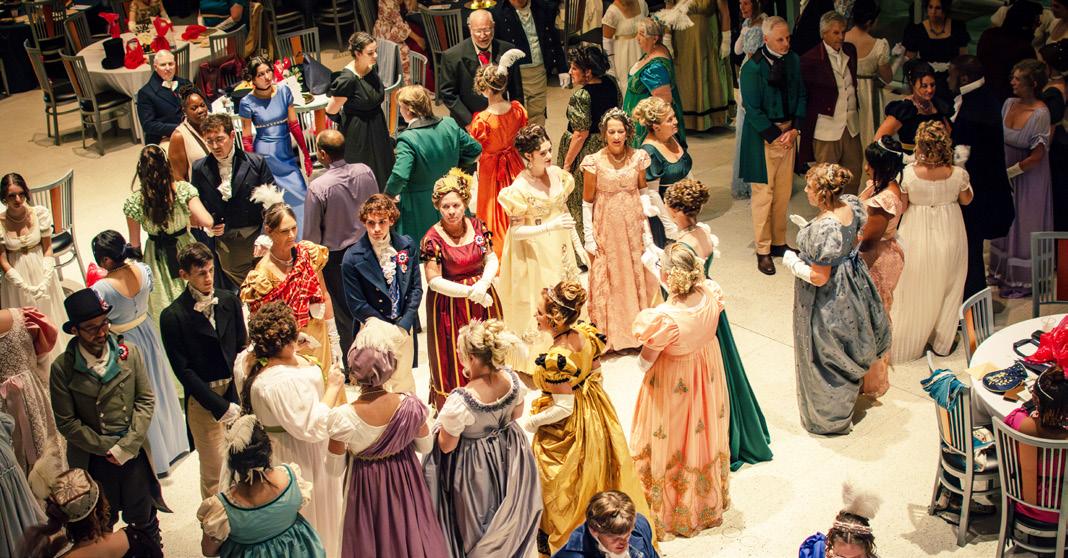
Now Lafayette is back for the 200th anniversary of the Farewell Tour! Like the original tour, the celebration will last 13 months, covering more than 6000 miles and 250 cities. One of the PREMIER sites for the Celebration is Fayetteville, North Carolina, where you invited to Party like it’s 1825!
Tuesday afternoon, March horse-drawn carriage accompanied Independent Light Infantry ago!
Tuesday evening, March 4
Steplively of Virginia and the will help you polish authentic Regency Period costume
Wednesday, March 5 – Explore history! See Lafayette’s carriage, Resolves (signed a full year Independence), and 200-year-old at Methodist University. Take

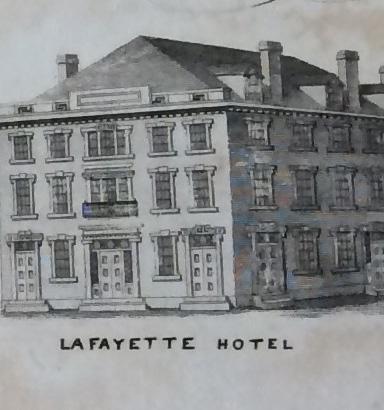



“I couldn’t catch my breath; I knew something was wrong.” – Sondra
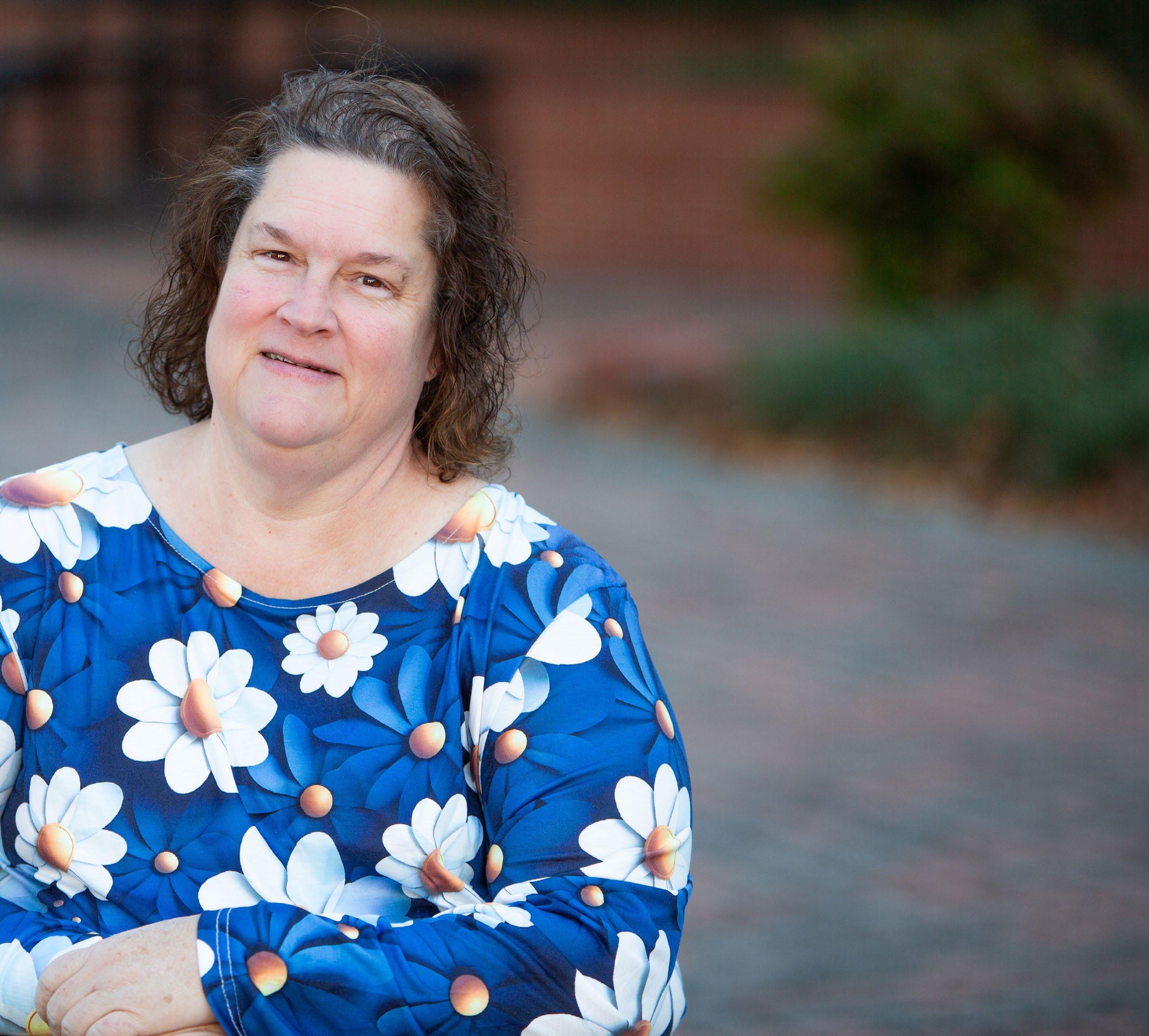
One afternoon, Sondra Bemesderfer had trouble catching her breath. She worried it might be COVID-19 or bronchitis. She had no idea she was suffering a heart attack caused by a blood clot.
Heart attack symptoms in women present differently and can include shortness of breath. Because she called 911, first responders were able to start lifesaving measures immediately, even before she reached the hospital, and saved her life.
Learn more about Sondra’s journey and treatments available at our heart center at capefearvalley.com/heart.
And if you have chest pains, don’t wait. Call 9-1-1!
Your health, our specialty.